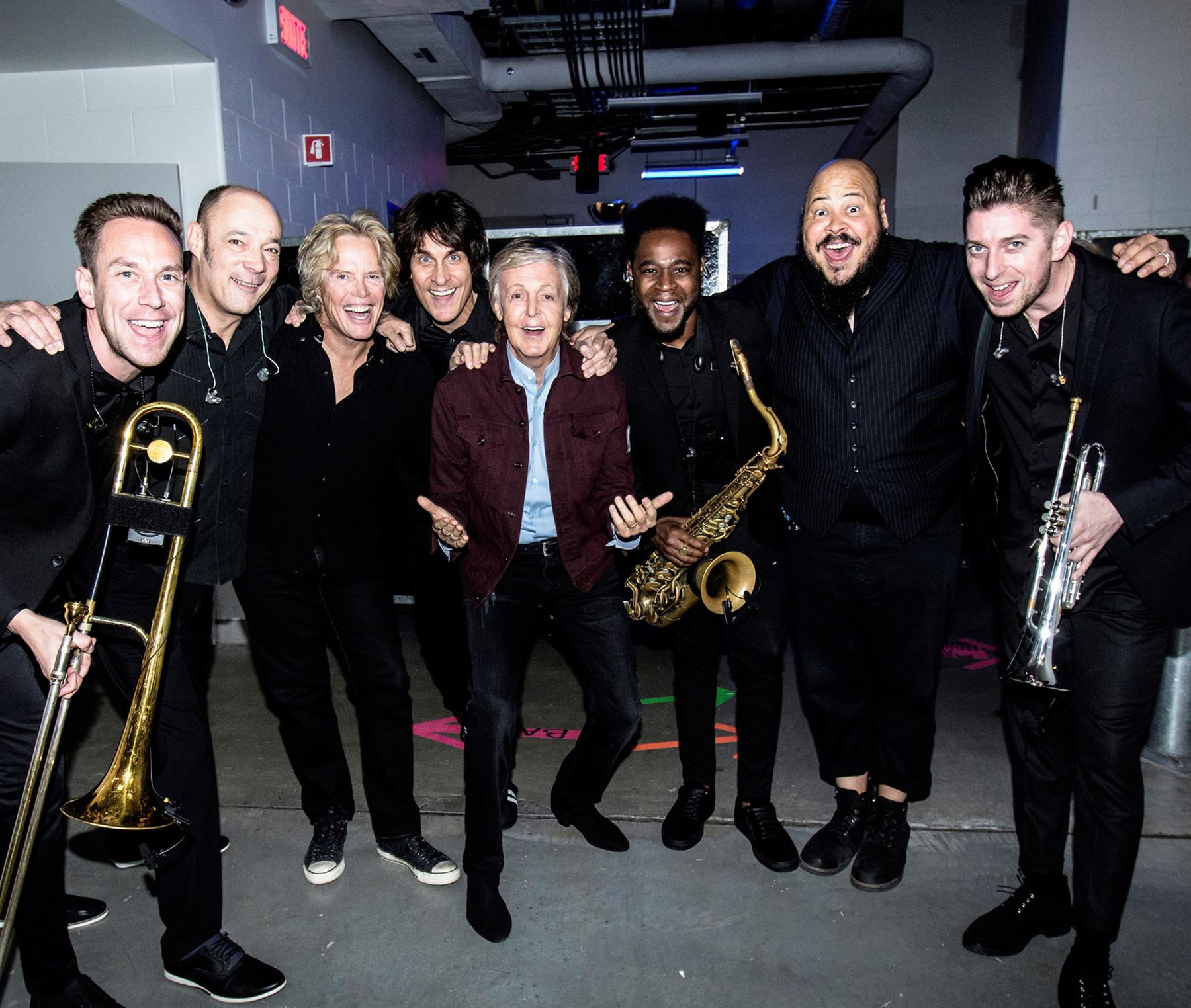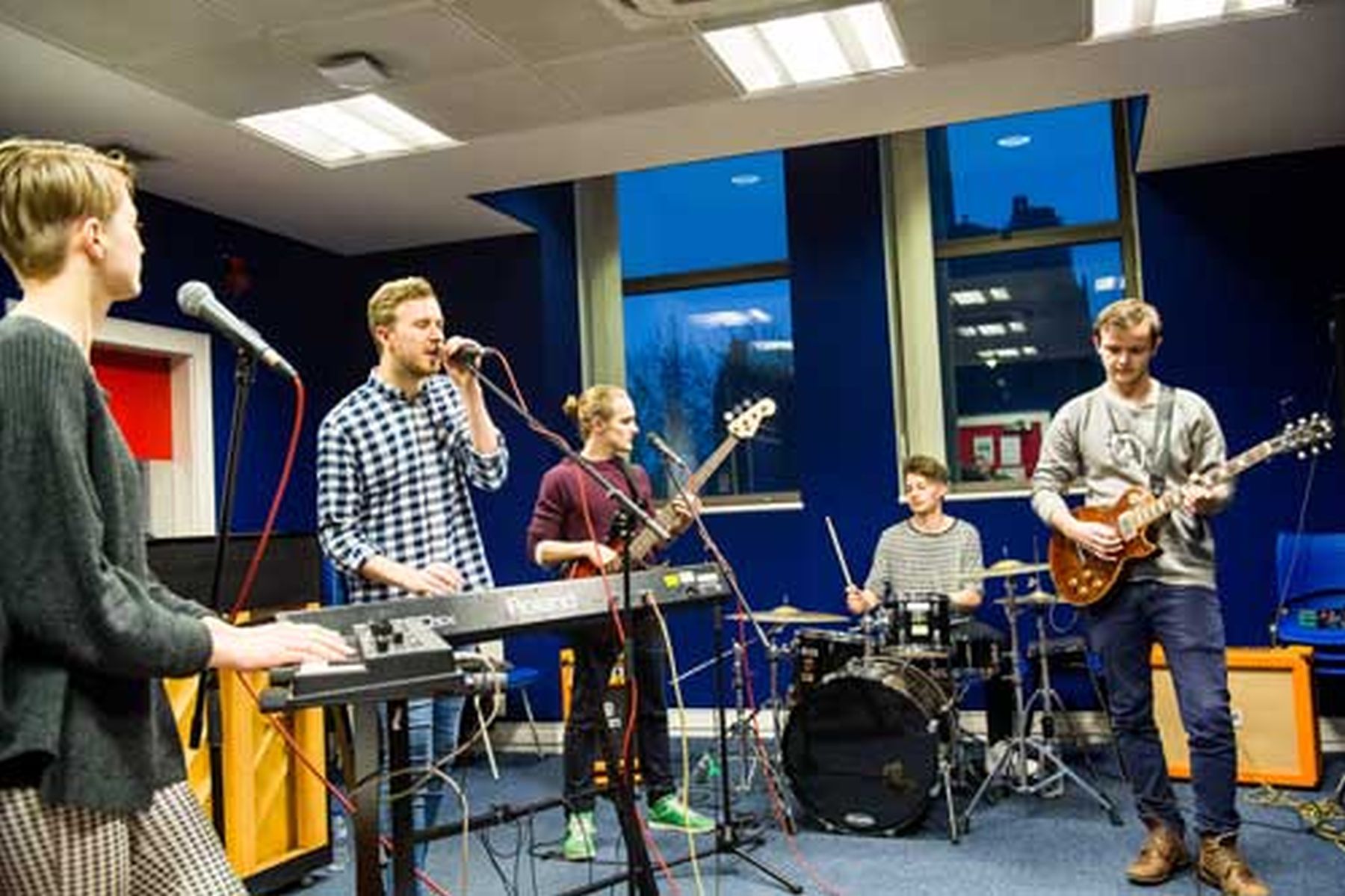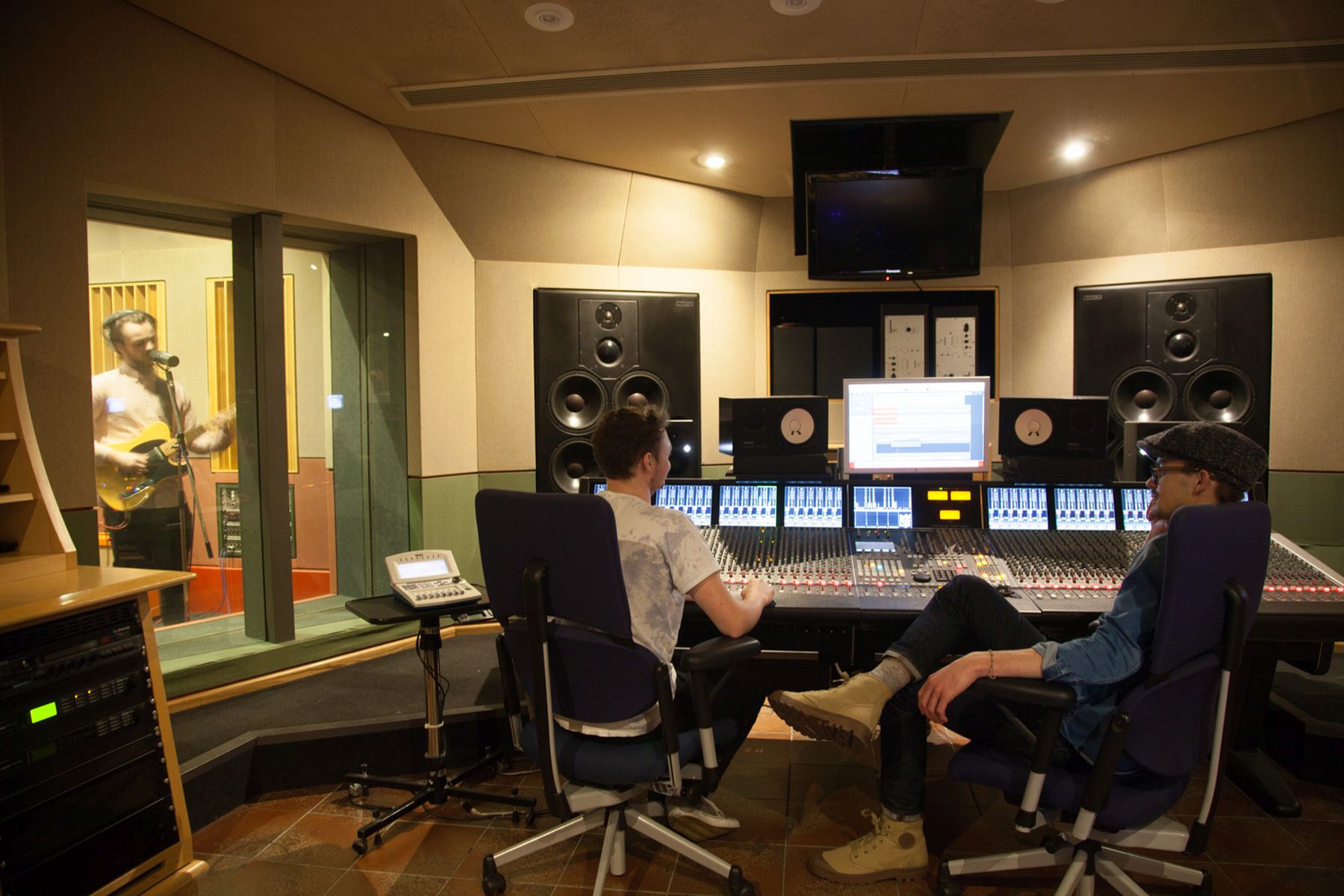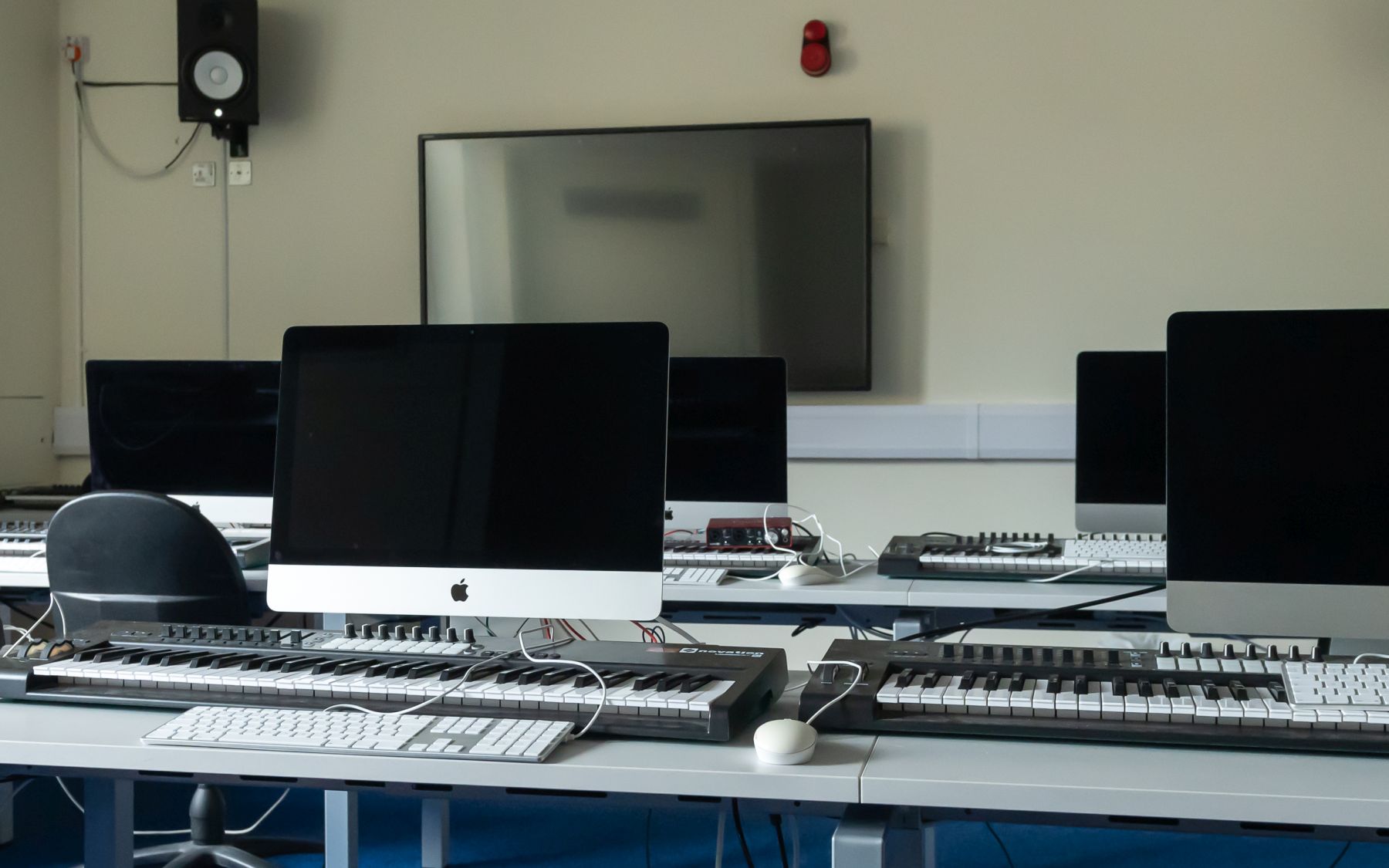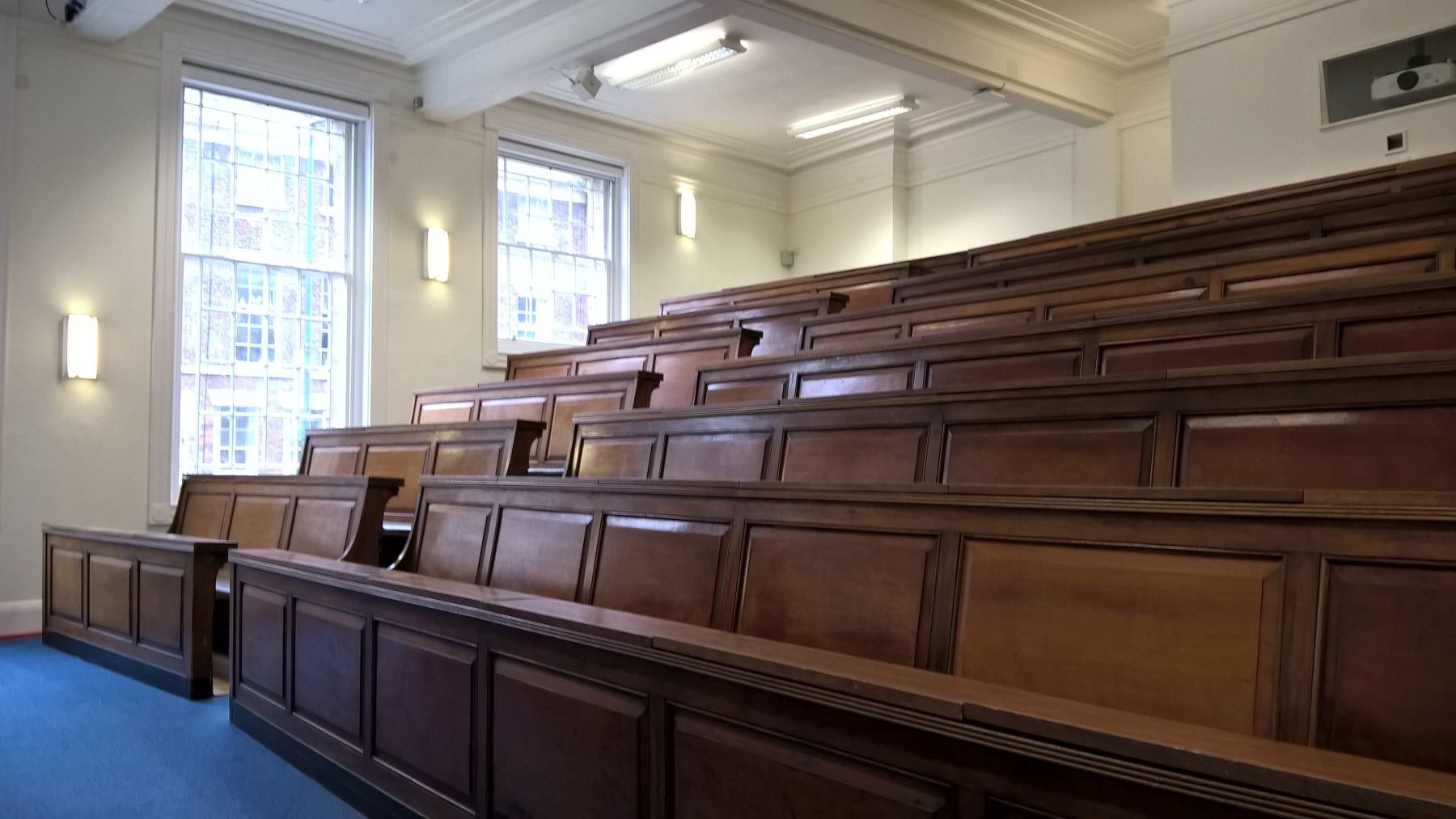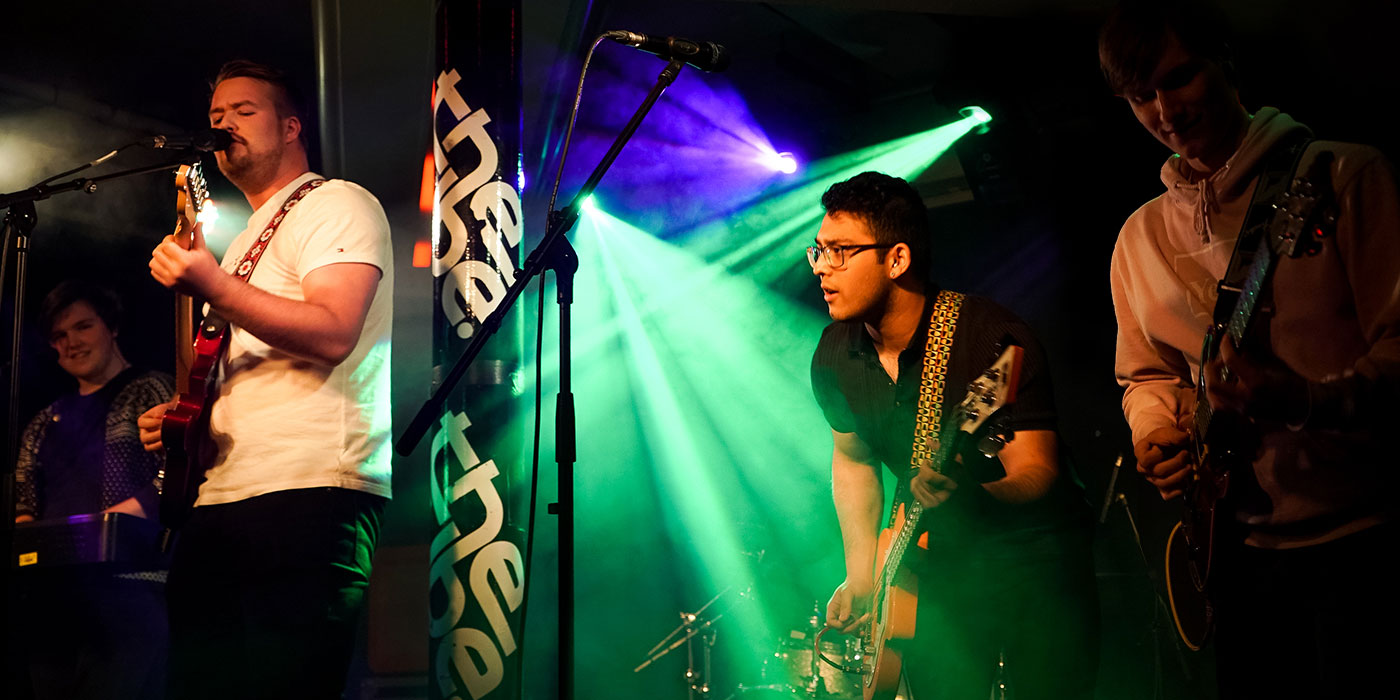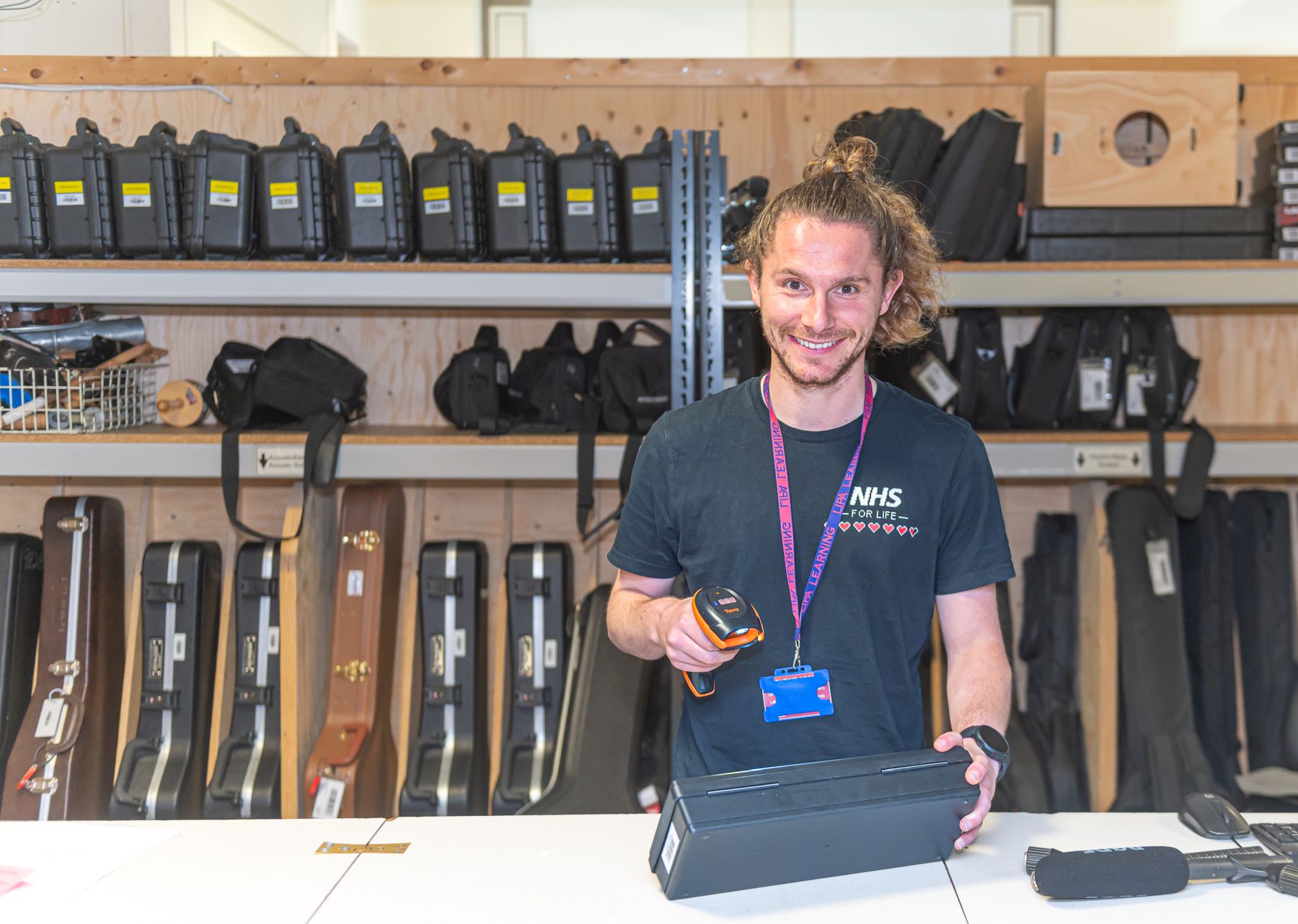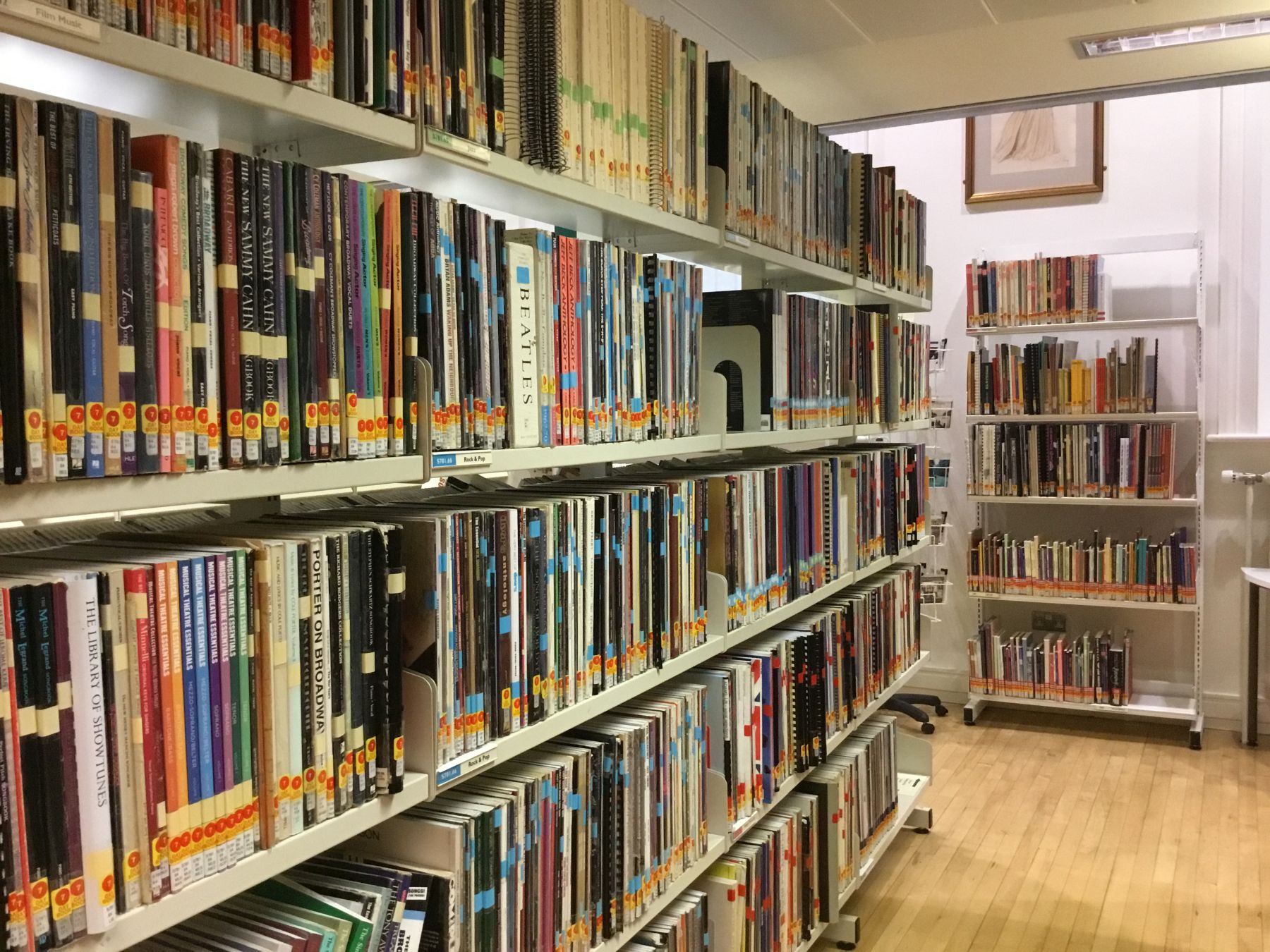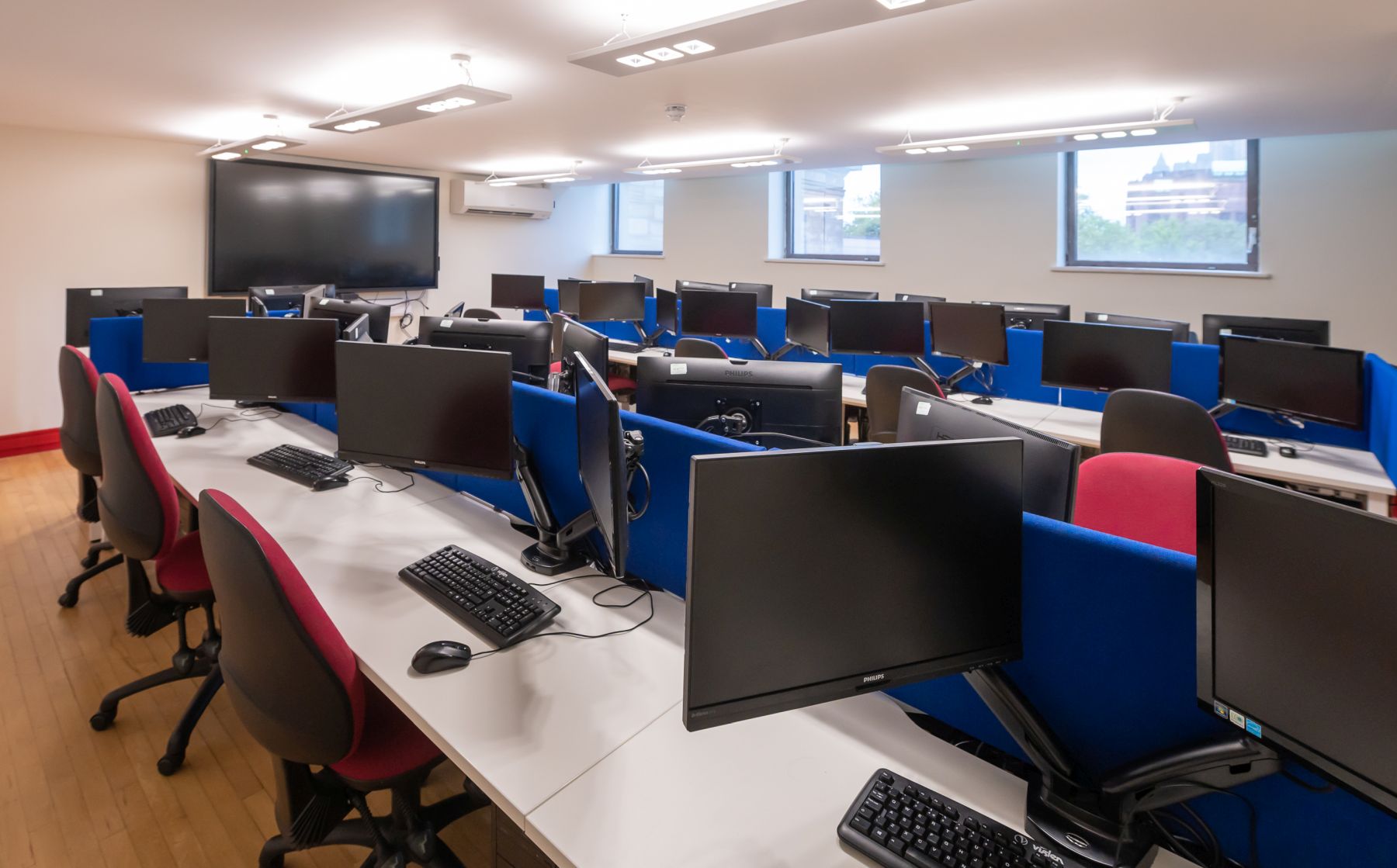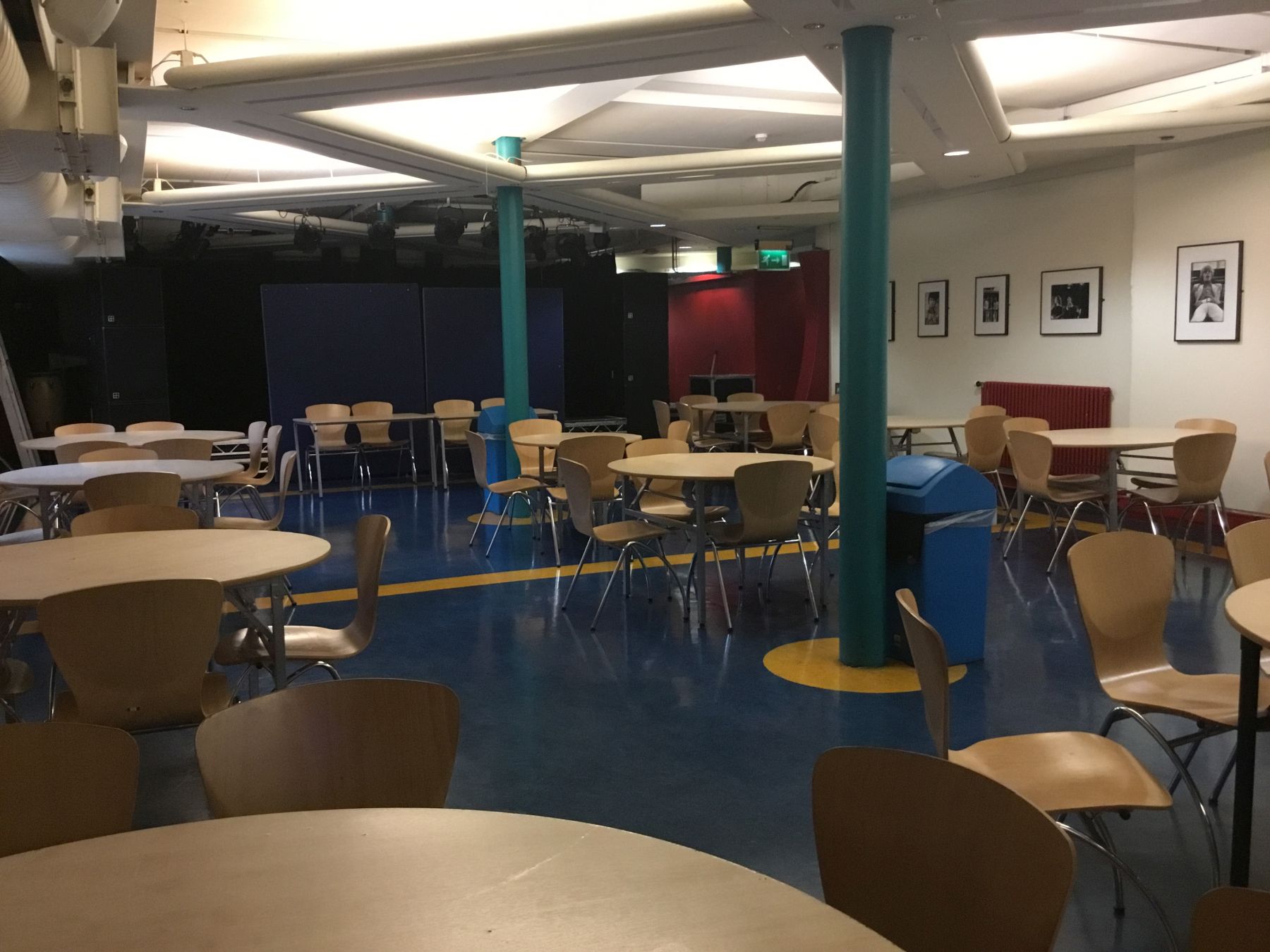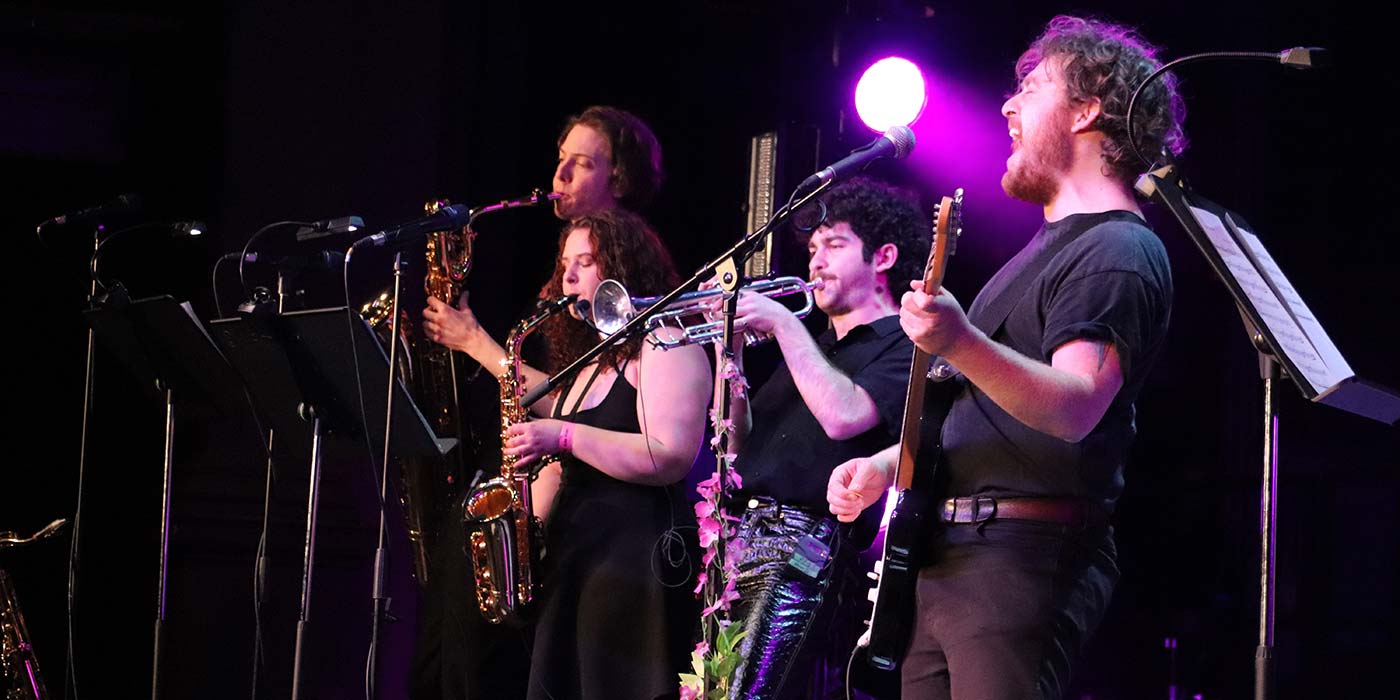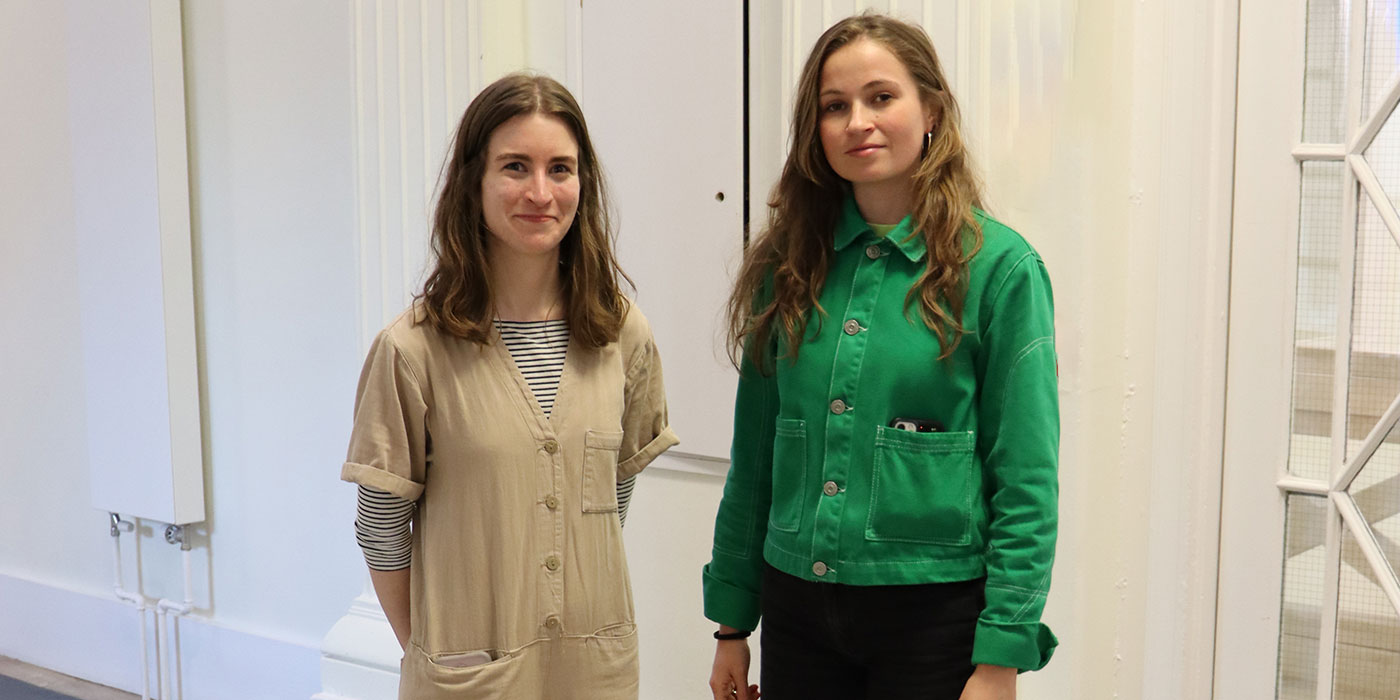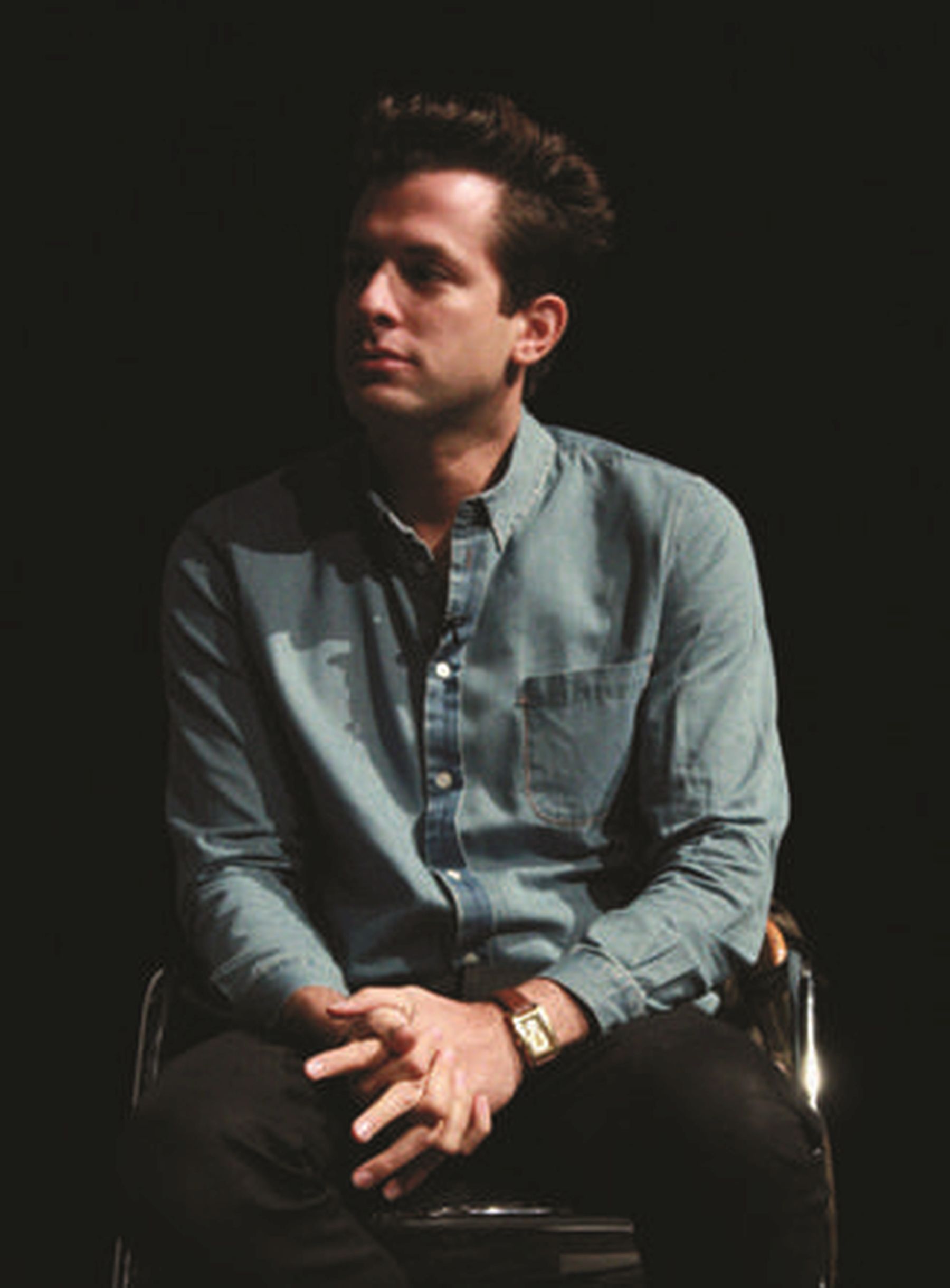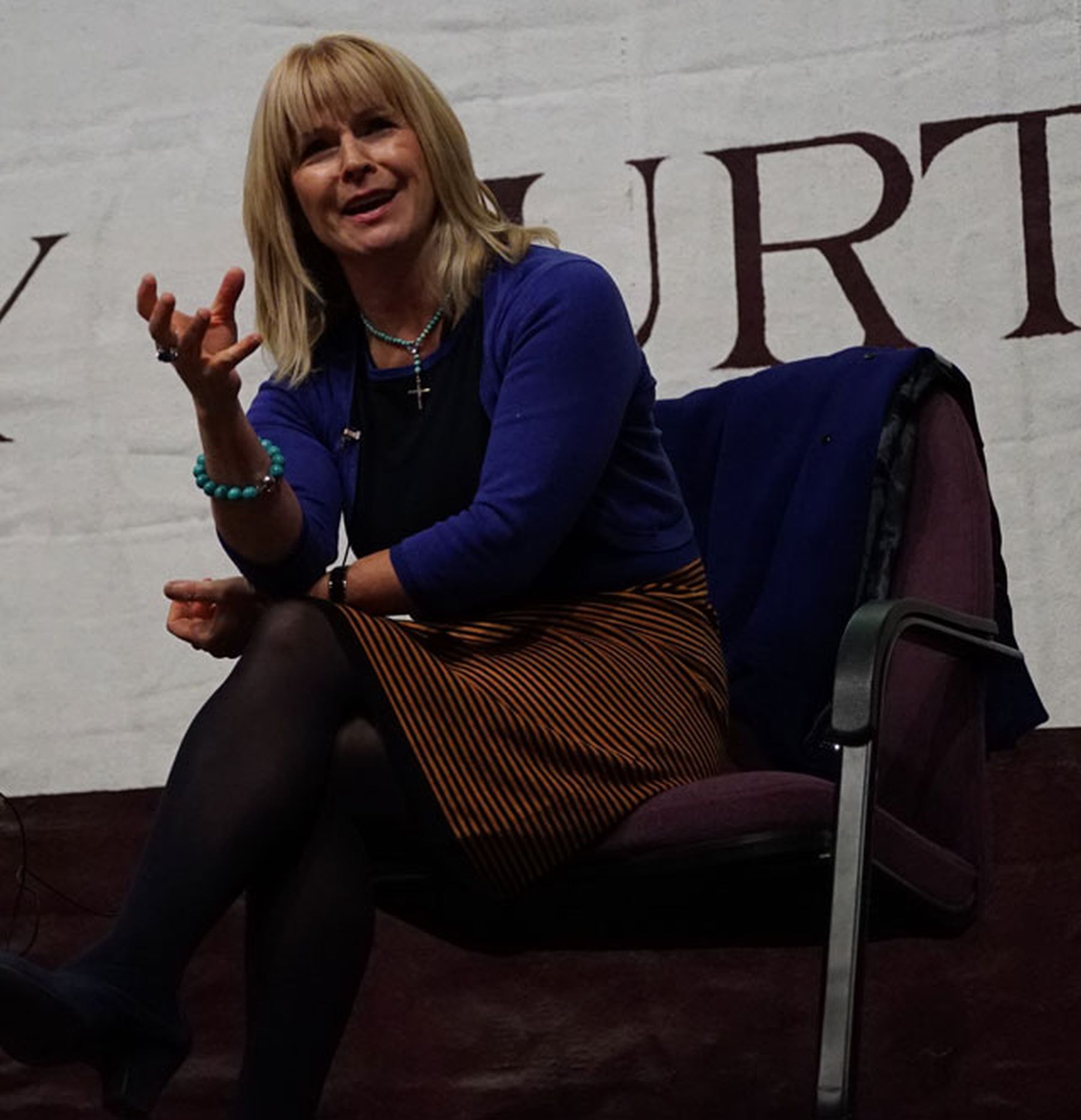Course
Overview
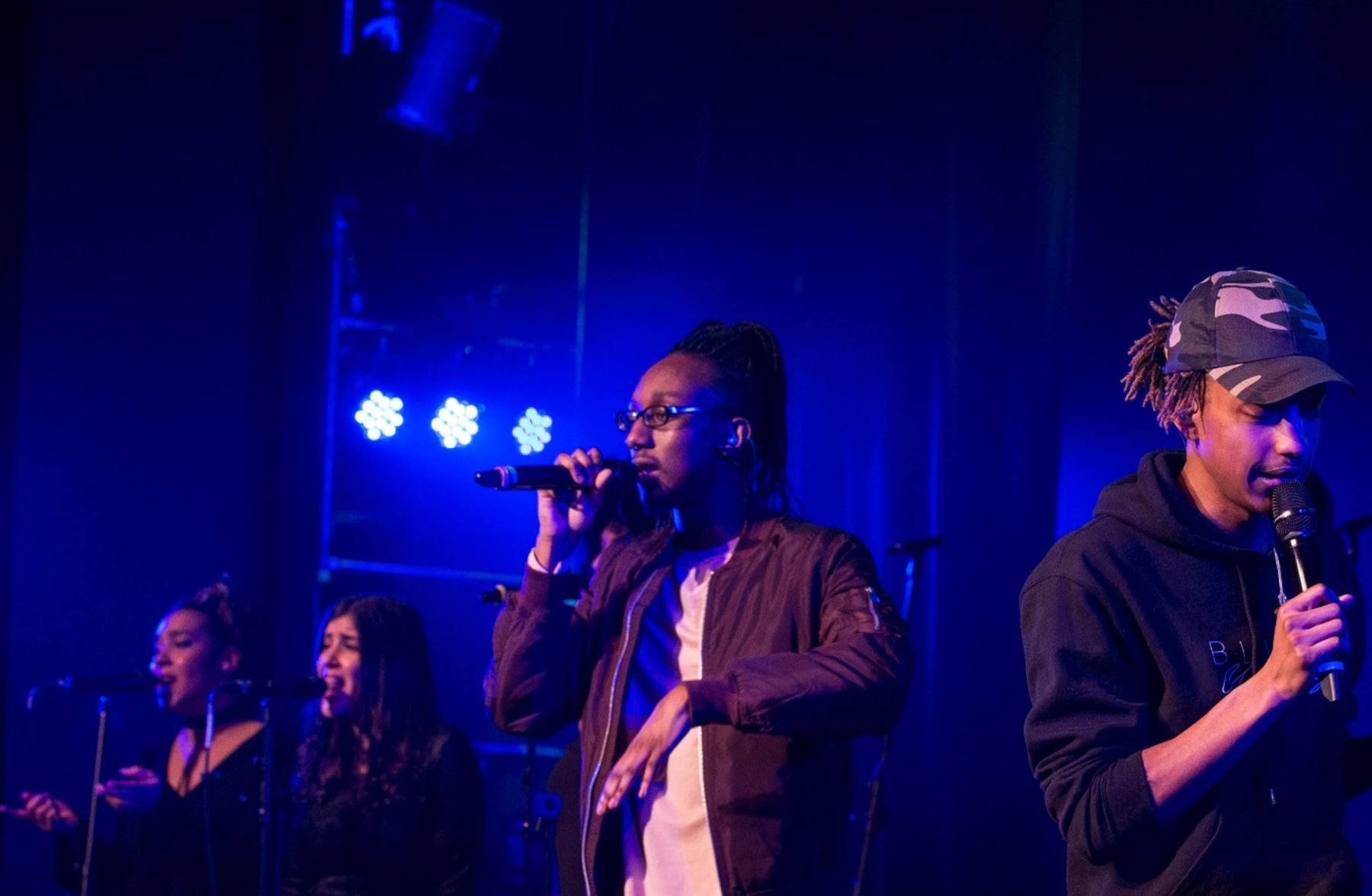

This course is for musicians who want to take a broad approach to working across the music industry and to succeed as performers, session musicians, media composers and producers.
Expert one to one instrumental tuition, music creation (composition and arranging) and music production techniques are at the heart of your training.
This is supplemented by improvisation, and aural and rhythmic skills workshops. You will also gain a thorough understanding of music theory and develop your practical and business skills which will support you to achieve your professional and creative goals. You will also gain a deeper understanding of core popular music academic and research skills.
You train in, and draw inspiration from, a diverse, culturally eclectic, creatively experimental and industry relevant learning environment. You can collaborate with musicians working across an exciting variety of genres and styles, as well as dancers, filmmakers, engineers and live music managers. You will benefit from regular visits from industry guests, masterclasses, A&R showcases and auditions.
Performance opportunities include bi-weekly Songwriters’ Showcase and Jukebox Shuffle (live covers with house band), weekly live band gig nights for new original music, and 2ube Xtra, an annual showcase festival of around 50 original live band performances in the Paul McCartney Auditorium. Vocal ensembles and choir also appear in public shows including the annual Christmas Concert at the Liverpool Philharmonic Hall.
You will graduate with an impressive and distinctive portfolio of performances, compositions and recordings showcasing your creativity and collaborations with musicians and technicians.
What You Will
Study
Instrumental/Vocal Technique 1
This module enables you to develop specific vocal or instrumental skills and techniques. One-to-one weekly instrumental or vocal lessons run for twenty-four weeks and are enhanced by weekly workshops in vocal repertory for singers and improvisation for instrumentalists.
Music Creation Techniques 1
This module is a practical and theoretical introduction to composition and arranging with a focus on the generation, development and presentation of original works. It provides you with an understanding of fundamental concepts in composition and arranging, and develops understanding in music theory, harmony, rhythmic and aural skills, providing you with a foundation for further studies and creative practice.
Music Production Techniques 1
This module is a broad introduction to desktop recording concepts with the aim of providing a solid base for further creative practice at LIPA. Key skills are introduced to develop existing and new abilities.
Music Professional and Creative Practice 1
Through this module, you bring together elements of what you have learned this year in practical projects. You develop and plan a range of appropriate professional and experimental projects based on your own music-related objectives. These could include songwriting, production, observed band rehearsals and performances. You also learn about how the music industry operates, including copyright and intellectual property, and music contracts and agreements. Your experiences on this module enable you to develop your planning and problem-solving skills.
Popular Music Studies 1
In this module, you explore how current popular music is created, mediated and consumed, within the music industry and broader socio-cultural contexts. Focusing on specific examples of current popular music, you become familiar with the relationships between music and its contexts, and the ways in which these relationships are understood, explained and debated. You also develop your research and writing skills and knowledge of academic conventions such as referencing.
Instrumental/Vocal Technique 2
This module helps you to further develop specific vocal or instrumental skills and techniques as well as general performance related skills. One-to-one weekly instrumental or vocal lessons run for twenty-four weeks and are supported by improvisation workshops for instrumentalists and vocal repertory workshops for vocalists.
Music Creation Techniques 2
This module builds upon first year study and encourages you to take an increasingly critical approach to your practice. You further develop your practical skills in composition and arranging and individual creative expression through increased familiarisation with applied contemporary music creation techniques.
Music Production Techniques 2
This module builds upon your first year study to develop your understanding of the role of a Producer within the wider music industry. Frameworks and strategies for evaluation and planning are supported with further investigation of practical music production skills.
Music Professional and Creative Practice 2
Through this module, you have further opportunities to apply your musical skills to practical projects. These could include collaborations with other subject areas here, playing in a pit band, session playing or developing your own individual project. You identify and plan different musical projects which link to your career ambitions, with your work allowing you to demonstrate your progression as an artist. Through all of this activity, you refine skills which will support you as you embark on life as a professional musician, including business and career planning.
Popular Music Studies 2
In this module, you analyse the visual aspects of musicians’ promotional materials and practices, focusing on examples of image, fashion and style, performance and music video. You become familiar with a range of analytical approaches, and become able to use lenses such as genre, identity and authenticity to analyse and contextualise examples of popular music visuals. You develop your academic skills, becoming more familiar with independent research and academic writing conventions.
The Music Professional
Through this module, you explore how you will pursue your career ambitions as a professional musician. You review realistic employment and self-employment opportunities and create a professional portfolio which reflects these, while considering industrial factors, marketing, legal and budgetary considerations. To support your career prospects, you develop appropriate promotional materials. There is additional focus on financial planning and management, along with contracts and copyright and how these will impact on your work and ability to generate income.
Popular Music Research
In this module, you build on the theoretical knowledge and understanding, and research/writing skills, developed in Popular Music Studies 1 and 2, to undertake research into an aspect of current popular music that is personally and professionally relevant and useful to you. You carry out independent research using a wide range of sources to write a substantial essay, supported through a series of research and writing skills lectures, and regular individual tutorials.
The Solo Performer (Option)
In your third year you choose two options. This module focuses on the further development of the individual performer on their instrumental/vocal specialism. It builds upon and applies the skills and technique from your first and second year. Over the course of the year, you are required to plan, execute and evaluate performance-led projects, leading to a final performance. One-to-one hour long instrumental or vocal lessons continue on a weekly basis. Vocal repertory or improvisation workshops support student projects.
The Session Musician (Option)
In your third year you choose two options. This module focuses on the further development of the ensemble performer. Building upon and applying skills and technique from the first and second year modules, you are required to plan, execute and evaluate performance led projects over the course of the year, leading to a final performance.
The Music Creator (Option)
In your third year you choose two options. This module builds upon and applies composition and arranging techniques studied in your first and second year to develop you to a professional-level composer and/or arranger. Over the course of the year, you plan, revise and execute to a professional standard a music creation-oriented project or projects. Your work is supervised by a music creation tutor and supplemented by drop-in sessions, workshops and visiting professionals which provides opportunities for professionally focused feedback.
The Producer (Option)
In your third year you choose two options. This module enables you to create music while encountering the role of record producer as you develop professional-level conceptual and practical production skills. You collaborate with performers, engineers, arrangers and programmers as you develop a portfolio throughout the year. It is an opportunity for experimentation, creative problem solving and the setting and attaining of relevant goals.
How You Will
Study
-
Workshops
-
One-to-one Instrumental Tuition
-
Practical Projects
-
Lectures
-
Seminars
-
Tutorials
-
Performances
-
Group Work
-
Independent study
-
Masterclass
How You Will Be
Assessed
Most modules are assessed by practical portfolio submissions of songs, compositions, productions and performances. You also produce a final research paper relevant to your practice and career.
Practical/written work ratio
80% practical work / 20% written assignments
View The
Staff

Steve Parker
Senior Lecturer
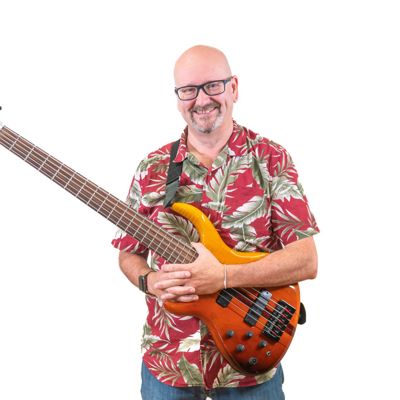
Tim Pike
Interim Director of the School of Music

Dr Helen Davies
Head of Music (Academic)

Keith Mullin
Head of Department: Management; Music Department: Subject Leader Professional Practice & Music Business
Paul Mitchell-Davidson
Lecturer
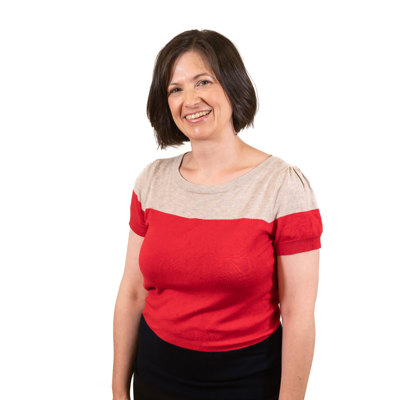
Kate Blair
Teaching Fellow
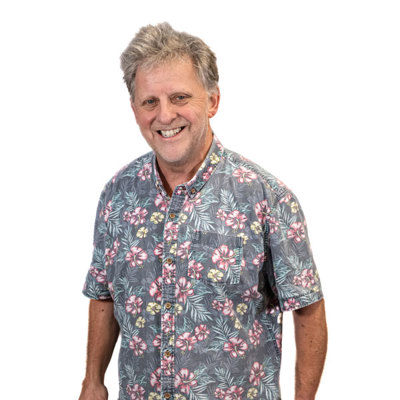
Peter Fairclough
Teaching Fellow
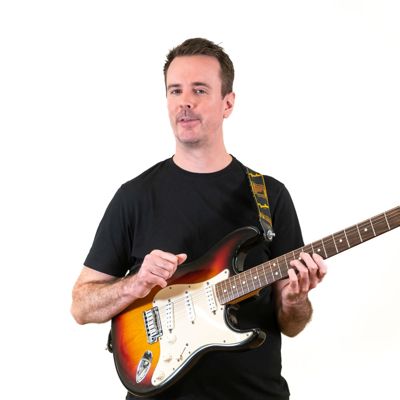
Jim Faulkner
Teaching Fellow
Martin Smith
Assistant Lecturer
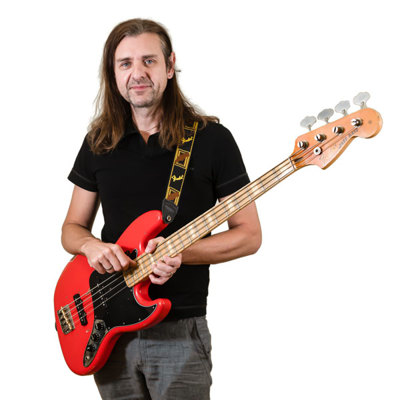
Oliver Collins
Teaching Fellow

Bob James
Lecturer

Vidar Norheim
Teaching Fellow

Dan Sanders
Head of Music (Creative & Technical)

Dr Veronica Skrimsjö
Lecturer
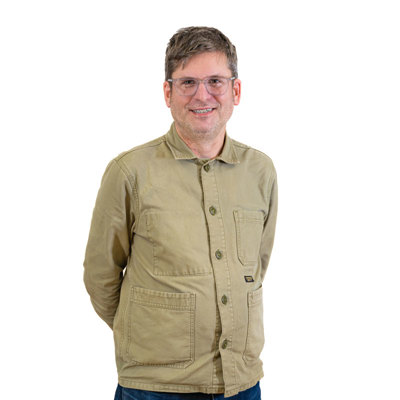
Joe Duddell
Teaching Fellow
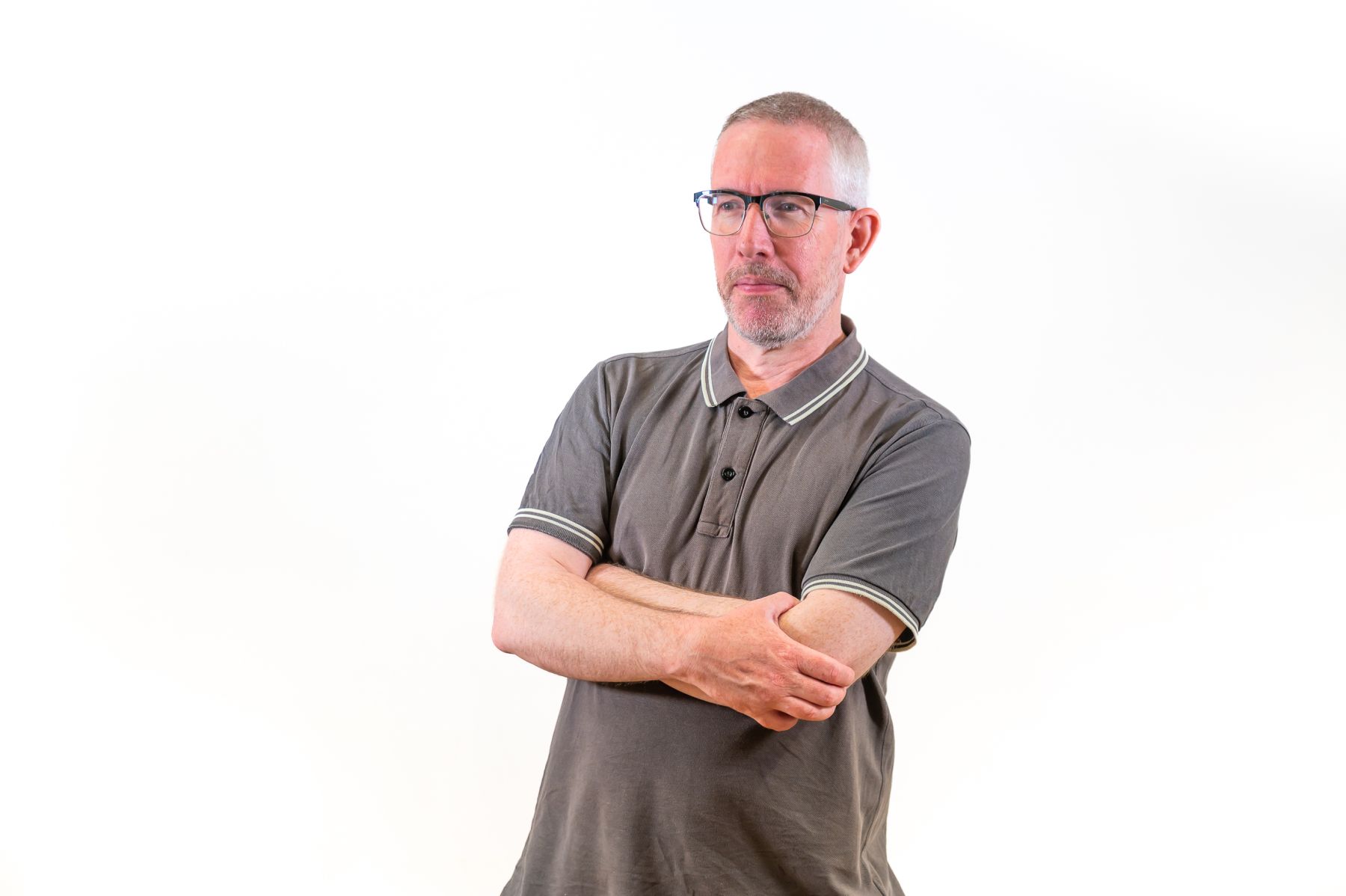
Steve Parker
Senior Lecturer
Steve’s professional career includes production, songwriting, remixing, session playing, engineering, mixing, arranging and composition. As a writer and producer Steve worked in partnership with Pete Waterman for over a decade, developing projects and achieving releases on all major record labels (BMG, Sony, Warner, EMI, Universal, Jive/Zomba) and working on music projects for national TV and live events. Steve has achieved numerous top 40 singles and albums, attaining 11 platinum album sales. As a remixer, credits include well-known names such as Britney Spears and Kylie Minogue along with many more underground artists, achieving numerous number 1 dance chart positions. Steve believes that listening to and analysis of a wide range of material, coupled with a solid theoretical understanding is key to broadening your understanding of songwriting and of production and arrangement. His extensive experience helps students develop the practical skills and the work ethic and judgment required for a professional career.
Steve leads sessions in songwriting and in music production, delivering lectures, practical workshops, seminars and one-to-one sessions. He takes a practical task-based approach to teaching and developing skills and holds dear the belief that being able to realise your songs and musical ideas as effective demos is vital for any musician working in the music industry today.
Steve’s professional industry experience informs all aspects of his teaching, experiences such as working to deadlines, making decisions, understanding commercial briefs, analysing and understanding unfamiliar styles of music, and being able to realise commercially viable products are central to the experiences he tries to create for students. Steve is acutely aware that while you’re not always fortunate enough to work on what you want, what you create still has to be musically effective.

Tim Pike
Interim Director of the School of Music
Tim studied music at Breton Hall College starting on oboe but switching to bass guitar midway through. He is a multi-instrumentalist playing bass guitar, guitar, keys, saxes and double bass.
After graduating he embarked on a career as a session musician and teacher. As both a music-reader and improviser, Tim has performed in theatres in the UK, recording sessions in London, playing for theatre shows at the Edinburgh Fringe and many jazz gigs. He was invited to teach at two of the institutions that he had previously studied at, and teaching became the dominant passion. After completing his MA in 1994, Tim began full-time teaching at LIPA in 1995. Since then, as well as teaching, Tim has mainly focused on jazz gigs on bass guitar for pleasure. He also turned his hand to other varied projects including the pre-production and recording of music played at The Beatles Story exhibition, to performing with China Crisis, and editing the music manuscript for Bill Bailey’s songbook. He can currently be found playing bass in two big bands (one with a weekly residency), and also holding the bass chair at the Liverpool Jazz Club’s monthly sessions.

Dr Helen Davies
Head of Music (Academic)
Helen is a popular music researcher. Her key research interests are gender and sexuality, music education, music and visual creativity, music in everyday life and ethnographic research. Her doctoral thesis, ‘Music in the everyday lives of young teenage girls’ (University of Liverpool, 2011), is based on ethnographic research in domestic and school settings in Merseyside. More recently, she has researched gender related issues for young musicians studying on popular music higher education courses and/or in early career. Since 2019, she has collaborated with the organisation UK Music on their research into diversity in the UK music industry. Currently, she is researching visual creativities for musicians. Helen is a Fellow of the Higher Education Academy, a member of the International Association for the Study of Popular Music (IASPM), and an editorial board member of IASPM Journal.
Helen is responsible for the design and delivery of all academic and popular music studies modules on LIPA’s music degrees and foundation courses, including supervision and day to day management of a small teaching team. In these modules, students are encouraged to critically analyse their own and other musicians’ practice and explore aspects of popular music culture and industry that are relevant to them. Helen brings her research interests and scholarly experience to all aspects of her teaching.
Selected outputs
Book chapters
2022
‘How do I look? The importance of visual analysis for musicians in popular music higher education.’ In D. Walzer (ed.) The Handbook on Music Business and Creative Industries in Education. Sheffield: Equinox.
2021
‘Because I’m a girl’: exploring experiences, practices and challenges relating to gender and sexuality for female musicians in popular music higher education.’ In R. Mathias (ed.) The Routledge Handbook of Women’s Work in Music, pp.26-35. London: Routledge.
2019
‘Preparing for the ‘real world’? Exploring gender issues in the music industry and the role of vocational popular music higher education.’ In C. Strong and S. Raine (eds.) Towards Gender Equality in the Music Industry. Education, Practice, and Strategies for Change, pp.29-44. London: Bloomsbury.
Journal articles
2019
‘Gender issues in the music industry and popular music higher education: Exploring the experiences of young musicians.’ Miscellanea Anthropologica et Sociologica special issue: Music as a social phenomenon – theoretical concepts and empirical inquiries, 20/2, 211–227.
2013
‘Never mind the generation gap? Music listening in the everyday lives of young teenage girls and their parents.’ Volume! La revue des musiques populaires, 10/1, pp. 229-247.
Conference presentations
2022
‘Technological change, visual creativities, and popular music higher education.’ International Association for the Study of Popular Music UK & Ireland Branch Biennial Conference. University of Liverpool, 31 August-2 September.
‘UK Music Diversity Report 2020: the data behind the report and actions.’ UK Music - Music Academic Partnership Symposium. Online, 26 May.
2018
‘Preparing for the ‘real world’? Exploring the role of music education in addressing gender and sexuality issues experienced by young popular musicians.’ Association for Popular Music Education conference. Middle Tennessee State University, 24-27 June.
2017
‘Young musicians, gender and sexuality: researching the issues in an educational context.’ 1st Symposium of the LGBTQ+ Music Study Group. Edge Hill University, 27 May.

Keith Mullin
Head of Department: Management; Music Department: Subject Leader Professional Practice & Music Business
MA, PGDip, FHEA Course Leader
Keith is a member of Liverpool band The Farm and works as a freelance music professional. The band’s first album reached number one in the UK and they continue to perform at festivals and UK venues. He has also managed bands and artists, and co-owned independent labels Honey Records, Produce Records and recently Vile Entertainment. Keith was also a member of The Justice Collective achieving the 2012 Christmas number one with their recording of He Ain’t Heavy, He’s, My Brother, working with Guy Chambers, Sir Paul McCartney, Mick Jones from The Clash, Robbie Williams and former Spice Girl Mel C.
With over 30 years’ experience in the music industry, he has acquired a knowledge and experience of the industry’s management structures and common business practice which he passes on to his students. He uses a mixture of approaches and methods to ensure that learning feeds into career-focused development for musicians and artists.
With an MA in Music Industry Studies, and PGCert in higher education teaching, he has mentored and taught numerous musicians who have gone on to enjoy successful careers in the music industry as songwriters, managers, A&R managers, live music industry media and digital marketing professionals. He continues to maintain relationships with many professional entertainment companies, publishers, record labels, agents, managers, promoters. In addition, he has performed with numerous experienced artists such as, Mick Jones (The Clash), Paul Heaton, Suggs, David Bryn, Susan Vega, Fun Lovin Criminals, Happy Mondays, Take That, Eurasia, Clean Bandit, Madness, The Stone Roses, Beverly Knight, Lightening Seeds, BA Robinson, New Order, Peter Hook & The Light and many other high-profile artists. More recently he worked alongside Rob Sloman as associate producer, composer and music director for the documentary Howard’s Way, the documentary currently features on sky documentaries.
Keith teaches a broad range of subjects across the disciplines of music and management, music industry and business, professional practice, research skills, practical project, work, live music and events, performance techniques and coaching. Keith’s industry knowledge and experience permit a relevant contribution to teaching and learning across multiple disciplines.
Keith possesses an extensive portfolio of professional experience having worked in the music and creative industries for 32 years. Working as a successful artist/entrepreneur since 1989 to the present day, has assisted in acquiring a comprehensive knowledge of music industry conventions and contemporary business practices. Enabling the application of music industry insights and practices within educational settings. Professional experience in Keith’s view is “an integral part of preparing students for a profession, through linking theoretical studies to deliberate practice and their learning”
Publications
What is a good higher education teacher? "Am I what I say I am?" Published 2017-04-18 LJMU Innovations In Practice
Hillsborough Justice Tour 2012 - The John Robb Diary, Book, Chapter Contribution
Music releases
Albums
Spartacus (1991)
Love Sees No Colour (1992)
Hullabaloo (1994)
Pastures Old and New (1986)
Spartacus Live (1991)
Groovy Times (1991)
Best of The Farm (1998)
The Very Best of The Farm (2001) [compilation] Back Together Now! Live (2006) All Together with The Farm (2007) [live album] Singles.
Keith’s songs have featured on 90-compilation albums
Singles
Hearts and Minds (1984)
Steps of Emotion (1985)
Some People (1986)
Body and Soul (1989)
Stepping Stone / Family of Man, Groovy Train, All Together Now (1990)
Sinful! (Scary Jiggin' with Doctor Love) with Pete Wylie, Don't Let Me Down, Mind (1991)
Love See No Colour, Rising Sun, Don't You Want Me, Love See No Colour (re-mix) (1992)
Messiah, Comfort (1994)
All Together Now (Everton FA Cup Final version) (1995)
All Together Now 2004 (feat. SFX Boys Choir) (1994)
Paul Mitchell-Davidson
Lecturer
Paul has been a professional musician for over 50 years, starting out in pop music before moving on to jazz and classical. His career has spanned radio, TV, theatre and dance and he has worked as a studio session musician for radio and TV as well as a composer, arranger, musical director, conductor and performer. Paul has arranged for pop and rock acts including rap artist Red Venom, N-Trance and China Crisis. Having worked in most areas of the music profession at the highest level, he is able to pass on the techniques and pragmatic elements involved in making a living writing music.

Kate Blair
Teaching Fellow
Kate is a singer-musician who has enjoyed a dual career as a performer and teacher since the early 2000s. An experienced vocal and performance coach holding both a PGCE and an MA by Research in Vocal Pedagogy, Kate has a particular interest in working with pop/rock artists in order to develop their individual sound and the expressive skills required for effective live and recorded performance.
Kate specialises in contemporary vocal technique, rooted in an in-depth knowledge of the anatomy and physiology of the voice and 'voice science'. Having trained extensively with international voice pedagogues in a wide-range of areas such as Estill Voice Training, Accent Method and Primal Voice, Kate continues to develop her teaching and performance practice, keeping up to date with the latest research.
Vocal health and rehabilitation are key areas of Kate’s practice and she is an active member of The British Voice Association, regularly working and training alongside interdisciplinary voice professionals, such as speech and language therapists. Kate works with singers to develop efficient vocal technique and an understanding of how to look after the voice, reducing the risk of vocal fatigue and other vocal issues which may arise as a result of busy gigging and recording schedules. This technique also underpins the exploration of the capabilities of the vocal instrument and the development of the artist’s individual sound and expressive performance.
Kate's approach is holistic and she draws on a wide range of research and related practice in order to develop the skills required by the contemporary singer and artist-songwriter. Kate’s research interests include interdisciplinary approaches to contemporary singer training; her postgraduate research focussing on Laban technique and Michael Chekhov technique. Her current research centres on somatic movement practices and how they may be utilised in order to build healthy vocal technique and to develop stage skills such as physical expression, emotional connection, stage presence and artist persona. Kate plans to extend this work to explore the use of physical techniques in combination with other approaches, such as Primal Sound.
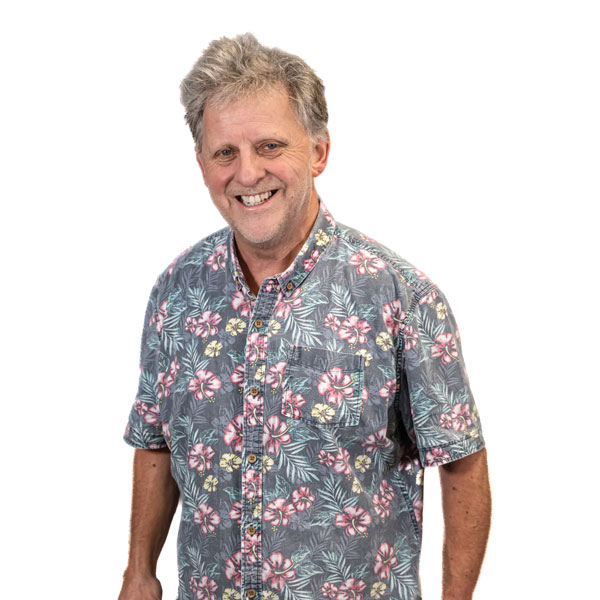
Peter Fairclough
Teaching Fellow
As a freelance drummer for 40 years, among the many artists Peter has worked with are Ute Lemper, John Harle and Keith Tippett. He has experience in theatre, film, TV, big band and recording and has released five albums of his own music. Peter has played across Europe, Canada, Hong Kong and India and attended the Drum Fantasy Camp in Chicago where he studied with Mark Guiliana, Antonio Sanchez, Virgil Donati and Dave Weckl. Peter continues to record with the Discus Music label.
Peter teaches weekly one-to-one drum lessons. He delivers a syllabus he has created especially for LIPA that is designed to produce creative, professional drummers who can prove themselves worthy of a degree. The lessons are based on a playlist of classic recordings.
In preparing students for their professional careers, Peter teaches classic grooves, interpreting the snare drum rudiments for the kit, co-ordination and reading – all of which he has called upon in his career.
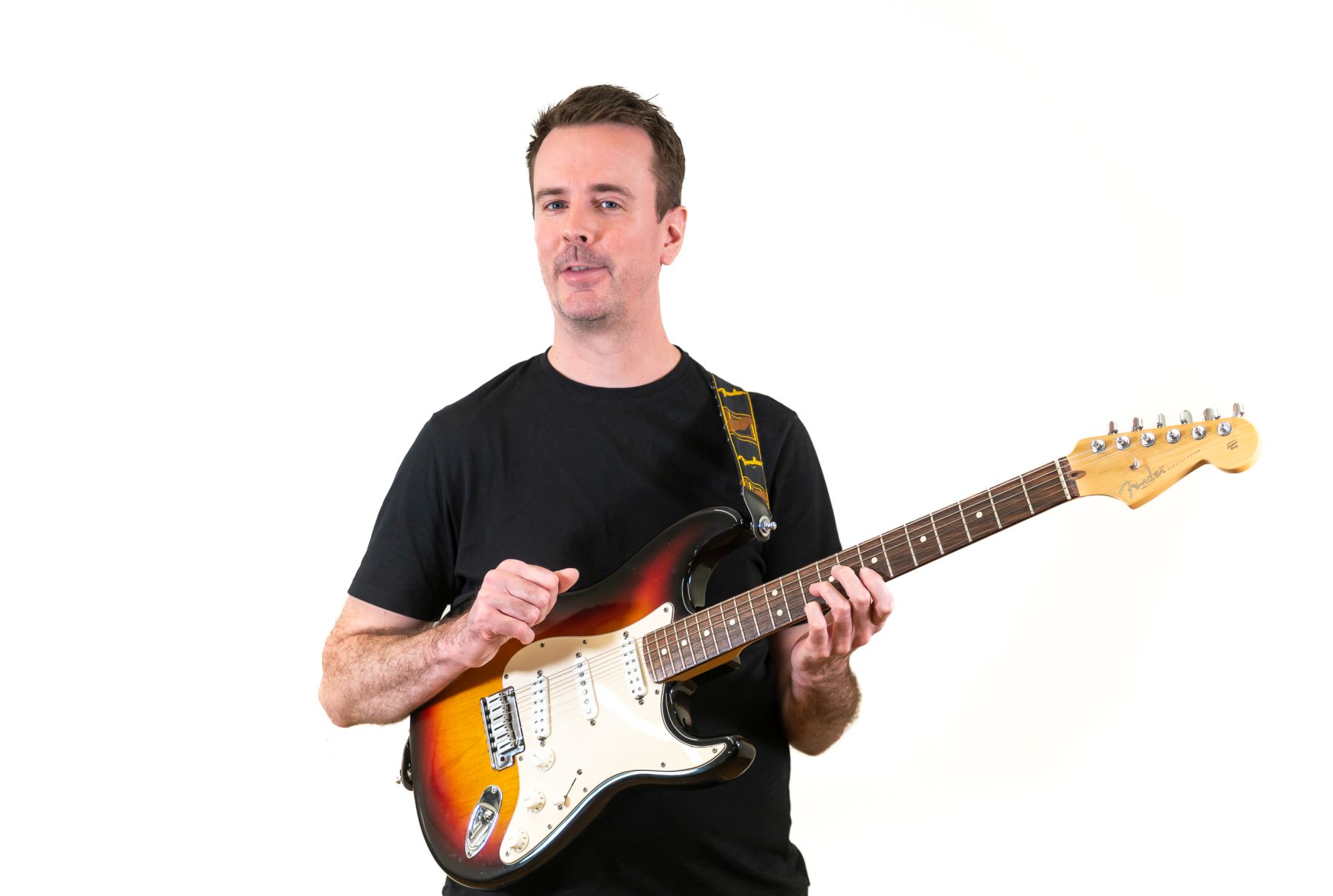
Jim Faulkner
Teaching Fellow
Jim Faulkner has been a professional guitarist for more than 20 years, working in studios, touring bands, theatre shows, tribute shows, and original bands.
Known for his versatility, he has recorded and performed in genres as diverse as contemporary classical music, progressive rock, fusion, contemporary jazz, traditional jazz and world music.
He has appeared at venues across Europe and continues to perform regularly with a variety of artists across the UK. Primarily known as a jazz guitarist, Jim has performed at many UK jazz festivals including Manchester, Liverpool, London and Brecon among others.
As well as maintaining a busy freelance schedule, Jim can be heard performing regularly with the world music group Unfurl (who he also composes for) and with Gavin Barras' Family Tree.
Jim is currently writing for his own solo project and will be recording his debut album to be released in 2023.
In Jim’s one-to-one guitar lessons he wants to help the students develop a strong musical foundation and show them how to join the dots between music theory, technique and their instrument. This is how the student can become empowered and find their own identity as a musician and guitarist.
In the improvisation lectures Jim wants to help the students learn how to express themselves and how to become a better musician within a band setting, how to support others within the group and how to become more fluent on their instruments. Playing different genres which use improvisation is a great way to build ability and confidence.
Jim feels most comfortable in settings where he is improvising, expressing what he is hearing and feeling through his instrument. As this is the area he mostly works in Jim is constantly looking for ways to improve his abilities in this and on his instrument, through this he develops methods to progress which he can then pass on to students.
Martin Smith
Assistant Lecturer
With over 25 years of professional experience, Martin’s recording credits include The Coral, Super Furry Animals and The Lightning Seeds, among many others. Martin is a lifetime member of cult jazz-punk beat combo The Wizards of Twiddly, and has toured extensively in Europe with The Muffin Men (Frank Zappa tribute band) and The BrassHoppers, a New Orleans-style street band. Outside teaching, Martin’s main focus is The Weave, an internationally-acclaimed jazz sextet. His experience of playing with groups of all genres means he has a good understanding of what’s required to become a high-functioning and valuable member of any ensemble.
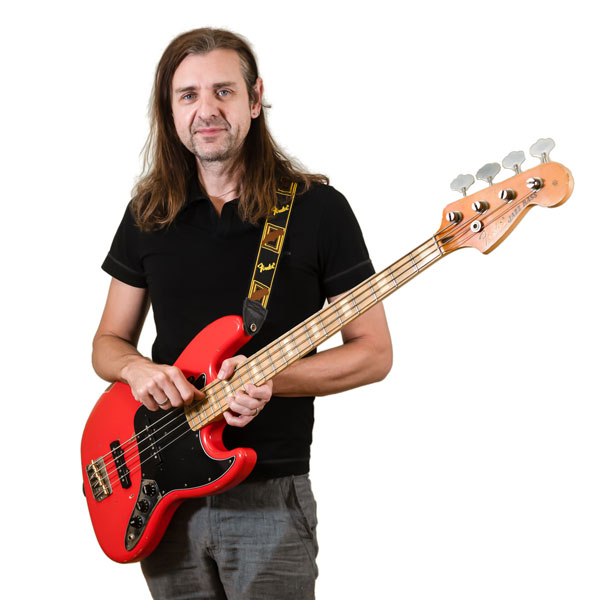
Oliver Collins
Teaching Fellow
With over 15 years’ experience tutoring bass at HE level, Ollie has developed a teaching method that suits the technical needs of the modern bass guitar student. Creative learning methods include recording/production as well as the application of music language and essential styles. Ollie is an active freelance bass player with over 25 years’ experience whose credits include recording and performances with Sister Sledge, The Temptations, Badly Drawn Boy, Black Rivers, Nearly Dan, Manchester Camerata and the Halle Orchestra. As an artist, Ollie Collins has produced several self-titled albums across various digital platforms.

Bob James
Lecturer
Bob has over 30 years of music industry experience including working in publishing, record labels, management, digital and other areas of exploitation of intellectual copyright. During this time, he has built up a strong network of contacts in Los Angeles, New York, Nashville, Germany and Asia as well as the UK.
Bob was founder and former CEO of Music House, which was the UK’s largest and most successful independent music promotions company. It worked with most of the UK and Europe’s largest labels and artists on club, radio, TV and international promotions.
He left Music House in 2002 to set up Asylum, managing the careers of various song writing and production teams including DEEKAY Music in Copenhagen and has through strategic co-writing and artist development built relationships with most of the major songwriters and producers worldwide. His writing and production credits have been responsible for over 60 million records sold.
Artist management included a selection of platinum selling acts, including Misteeq, and he has developed acts that have involved Randy Jackson (American Idol) and Mick Fleetwood (Fleetwood Mac).
Bob was instrumental in the negotiation of the first ever digital deal with Universal Records and has done ground-breaking deals for his artists involving major brands, including Motorola.
Still an active manager, Bob’s roster of artists includes Kelvin Jones (gold and platinum selling artist in Germany) and Hannah Trigwell. He has been a consultant to Arista Records (BMG) and EMI Records and been part of a production team with projects signed to Warners, MCA and Telstar Records.
Bob now runs Get Money from Music, where he mentors and coaches' songwriters, producers, recording artists and music industry entrepreneurs. He regularly sits on industry panels and lectures on the music industry and new business models across the UK and Europe.
Bob currently works on the MPP modules and mentors' performance, songwriting and production students at LIPA. He provides feedback, support and guidance as he uses his experience to guide students on the best way to navigate the music industry.
Through his years of experience Bob has learnt that artists need support not only in business but also with their mindset and creativity. Before entering the creative industries, you need to learn how to understand and deal with the pressures you will be under, be your authentic self and have the right knowledge to help you navigate your way to success. Bob’s role with students is to help them create possibility.
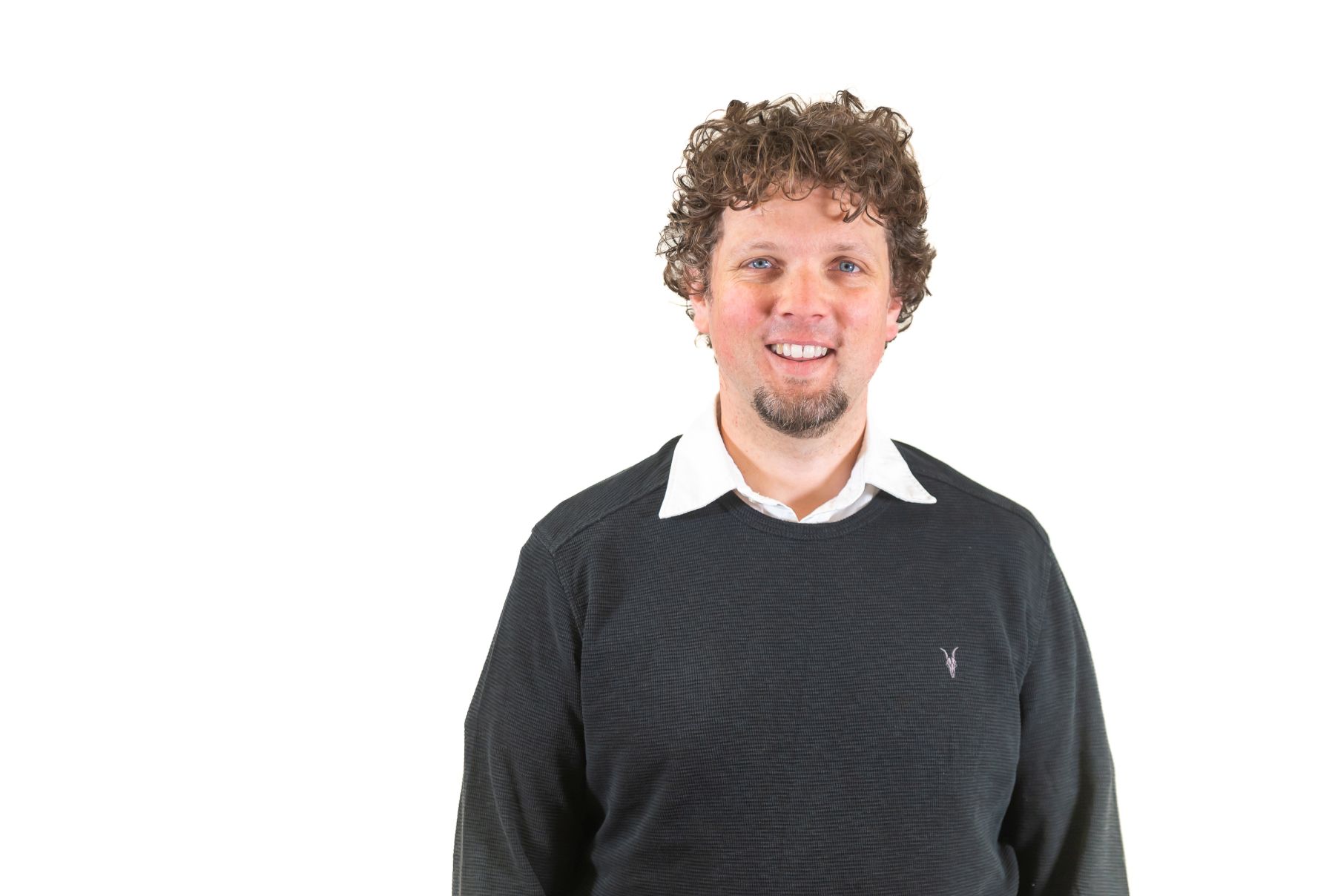
Vidar Norheim
Teaching Fellow
Vidar Norheim is a multi-instrumentalist, songwriter and producer from Norway, now based in Liverpool. He studied BA Music at LIPA and PGCE at Rose Bruford. Vidar has toured worldwide as a member of Liverpool's alt pop band Wave Machines, with highlights including Glastonbury, SXSW and BBC Electric Proms. He is a published songwriter and the music has received many placements in TV series including HBO’s Entourage, Skins and adverts such as Volkswagen.
In 2011 he was named Norway's most promising songwriting talent, winning a place at Song:Expo in Trondheim alongside many of the world's leading songwriters and producers. 2016 saw the release of his solo debut EP Blind Carbon Copy which was released on labels in Japan, Norway and the UK. 2019 saw his second release, X-Ray Eyes, and a UK tour. He also plays drums for China Crisis and works as a session musician. Past session work includes Stark by Mr Chop which was sampled by Kanye West and Kid Cudi in 2018.
He collaborates regularly with playwright and musician Lizzie Nunnery on album releases and theatre projects. Theatre composer and musical director credits include Narvik (Best New play UK Theatre Awards 2017), The Sum (Liverpool Everyman 2017) and Sparkplug (Sky Arts 2021).
Vidar is passionate about the work he does at LIPA, helping to shape a new generation of music makers.

Dan Sanders
Head of Music (Creative & Technical)
MMus SFHEA Subject Leader, Music Production, School of Music
As a self-employed music professional, Dan delivered projects with major and indie labels for 15 years before joining LIPA full-time. Day-to-day negotiation with A&R, artist management and label executives plus a practice-based understanding of music rights shaped Dan's experience, allowing him to pick up multiple platinum sales awards for his production work along the way. Dan now looks at how the new generation of music entrepreneurs can meet the challenges of a changing music industry.

Dr Veronica Skrimsjö
Lecturer
Veronica has a BA (Hons.) and MA in popular music studies, and a PhD that focused on popular music, aesthetics, and record collecting. She has been teaching at HE-level since 2009 and is a fellow of the HEA.
Veronica’s research is primarily concerned with record collecting and collecting cultures, materiality and aesthetics. One of her main aims is to highlight how diverse and active popular music fandom and consumption is, and she has a clear focus on the listener and reader-response theories. In 2016 she published the book ‘I, Me, Mine?’: An Initial Consideration of (Popular Music Record) Collecting Aesthetics, Identities & Practices, and more recently published the book The Vinyl Revival, Gender, and Collecting Aesthetics.
Veronica is the co-chair and a founding member of the Society for Music Production Research (SMPR), and the Journal of Music Production (Intellect Books), and sits on the editorial board for The British Pop Archive book series (Manchester University Press). She regularly provides research commentary for various media, including radio, television, and print, and she is the sole owner of the Cunard Yanks record collection.
Selected publications/research
‘I, Me, Mine?’: An Initial Consideration of (Popular Music Record) Collecting Aesthetics, Identities & Practices (2016)
The Vinyl Revival, Gender, and Collecting Aesthetics (2025)
A selection of shorter works is available via www.veronicasvinyl.com
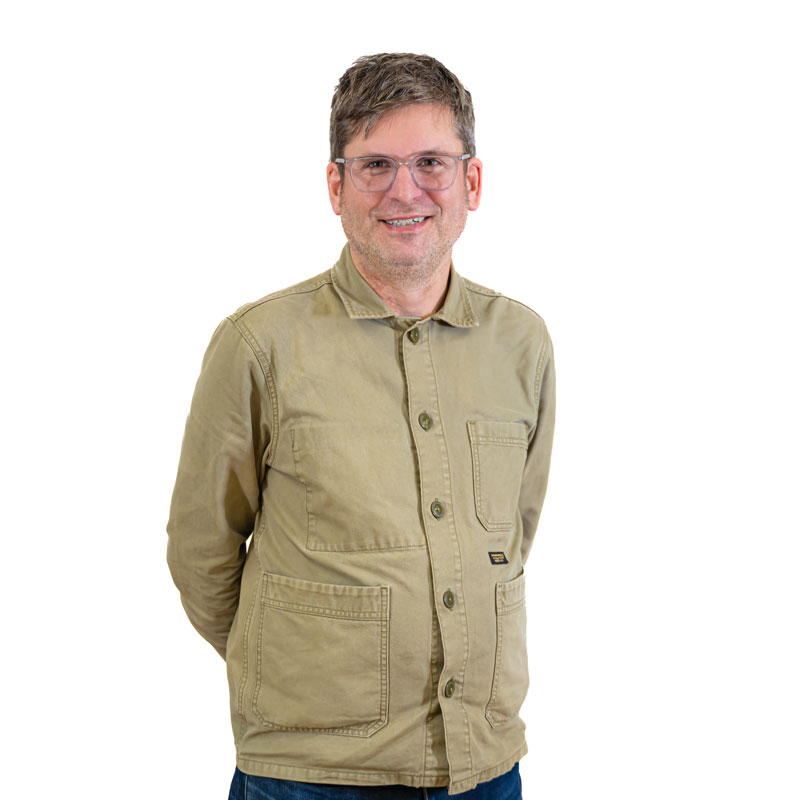
Joe Duddell
Teaching Fellow
What Our
Graduates Do
Our graduates work as solo artists, in bands, as session musicians (live and studio), songwriters, composers, arrangers and musical directors. Their career achievements have included:
Ed Juniper (2018)
Digital marketing manager for Polydor Records.
Eline Brun (2016)
Member of the band I See Rivers. They released their debut album, Deep and Rolling Green, to critical acclaim in 2020.
Gøril Nilsen (2016)
Member of the band I See Rivers. They released their debut album, Deep and Rolling Green, to critical acclaim in 2020.
Lill Scheie (2017)
Member of the band I See Rivers. They released their debut album, Deep and Rolling Green, to critical acclaim in 2020.
Katya Edwards (2016)
Co-wrote About You by Tyron Hapi & Laurell which went Gold in Australia. Other credits include My Way with One Bit featuring Noah Cyrus.
Katie Tarrant (2016)
Composer and audio designer for games company Rare. Credits include Sea of Thieves.
Sophie Cooke (2015)
Her songwriting credits include co-writing Jess Glynne’s hit All I Am, Dua Lipa’s Hallucinate and Katy Perry’s Only Love. Performing as Frances, she was nominated for a BRITS Critics’ Choice Award and her second album, Wonder, was released in 2021.
Rickey Long (2015)
Freelance musical director and musician. Credits include deputy musical director/ conductor and keys 2 on the UK & Ireland tours of Grease, Motown the Musical and Hairspray.
Laura Williams (2014)
Drummer with Riverdance tour, other credits include Six the Musical, West End, the Royal Shakespeare Company’s winter season at Barbican Centre and national UK tour of Romeo and Juliet.
Caroline Ailin (2012)
Songwriter who co-wrote Dua Lipa’s New Rules. Has also written for Katy Perry, Ellie Goulding and Clean Bandit
Sam Rourke (2011)
Bassist with Circa Waves, the band have had four UK top twenty albums.
Dan Croll (2011)
Singer-songwriter who released his third album Grand Plan in 2020. His music’s been used on ads for iPhone and FIFA and Grand Theft Auto games.
Jessica Staveley-Taylor (2010)
Makes up one third of The Staves, along with her sisters. Their 2021 album Good Woman entered the UK charts at number 13.
Hannah Peel (2004)
Artist, producer and BBC Radio Three presenter. Her album Fir Wave was nominated for a 2021 Hyundai Mercury Music Prize. Wrote the soundtrack for Game of Thrones: The Last Watch and orchestrated and conducted on three Paul Weller albums.
Liam Lynch (1998)
Musician, songwriter, filmmaker. Co-wrote music for School of Rock, co-wrote and produced soundtrack for Tenacious D in the Pick of Destiny. Directed videos for Foo Fighters, They Might Be Giants and ‘Weird Al’ Yankovic.
Performance and showcase opportunities
There's no shortage of opportunities for students to hone and showcase their abilities as performers and songwriters. These include regular gig nights, industry A&R sessions and a full-scale music festival. Off campus there's the chance to become part of Liverpool's eclectic, culturally diverse and flourishing music scene. Our students have been regular performers at venues in the city including The Cavern, QUARRY and The Jacaranda.
To see our students in action head over to YouTube for showcase performances from our festival The 2ube Xtra 2023. You can also see photos of them performing - including at our Christmas Concert - over at FLICKR.
Related
News

Three LIPA grads part of Legally Blonde tour

Management Student Della becomes first Cypriot to win prestigious award

Winter/Spring season of public performances

Gallery: Term one productions 2025/26

A busy and creative Christmas for LIPA grads

LIPA secures £2.5m Office for Students capital funding to deliver new performance and digital innovation hub

WATCH: Apple advert ft. music by grad Hannah Peel

Bruce Springsteen Q&A: ‘Always bet on yourself’

LIPA and Sefton Council join forces to bring fresh creative energy to Salt and Tar

LIPA named a Billboard Top Music Business School for a fifth consecutive time

Masterclass helps Management students understand the power of metadata

Autumn/Winter Season of public performances

LIPA achieves major milestone: new degree awarding powers

Gallery: Graduation 2025

Sir Paul McCartney honours leading arts figures at LIPA graduation

LIPA grads and students head to Edinburgh Fringe

LIPA grads win prestigious music production awards

New musical The Gardening Club set for London run

LIPA’s festival of new music to showcase 60 artists

PippaFest: Music grad organises festival in memory of her sister

LIPA Sound Tech and Music grads nominated for top music production awards

Research: Gen Z the driving force behind vinyl’s resurgence

Watch: What's it like to perform at the Liverpool Philharmonic Hall?

LIPA grads get creative for Christmas

Gallery: LIPA Christmas Concert

LIPA to co-host major international music education conference

Jamie Webster and Alfie Skelly take a deep dive into the artist-manager relationship

Watch: The Wombats collaborate with fellow grad on new video

LIPA part of £7m boost for Liverpool’s music scene

Watch: Performing with Elvis Costello and being a horn player at LIPA

Research: Music, gender and visual analysis

Pixie Lott at LIPA

Elvis Costello thrilled with LIPA Horn Section collaboration

LIPA shortlisted for environmental award

LIPA brass players to perform with Elvis Costello

LIPA grads and students at Edinburgh Fringe

Gallery: Graduation 2024

Award-winning LIPA grad honoured by Sir Paul McCartney

Profile: Lydia Shute – singer/songwriter

WATCH: 2ube Xtra - LIPA’s student run music festival

LIPA supports Africa Oyé

Gallery: LIPA students take part in Queen Anne naming ceremony

Insta audition leads to UK tour

"We felt almost every emotion at once": LIPA graduate triumphs at Eurovision

LIPA students and graduates collaborate on new dance show

Twelve day music festival showcases LIPA students

Profile: The Gardening Club - A New Musical
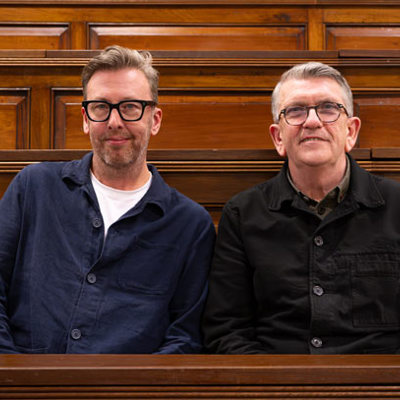
‘The Smiths were authentic’ - drummer Mike Joyce
Educational qualifications are important but limited in what they can tell us about you.
Your natural ability, your fit with what and how we teach, your growth and your potential are also key factors in our admission process. We can’t evaluate these solely on your educational achievements, so no matter which course you are applying for, we look for the following attributes on your application and at the interview stage.
Additional Costs
As part of this course, there are likely to be some additional costs that are not included within your tuition fees. Many of these are optional.
Theory test
Many of the modules on the Music degree rely upon an understanding of music theory. For UK students we want you to have attained a Grade 5 Music theory qualification by the time you enrol with us. As a guide, the examination fees for the London College of Music Grade 5 Popular Music Theory in 2023 are around £55. We test you at audition and if you score a high mark we may waive the requirement for a formal Grade 5 Music theory qualification.
Equipment
With regard to equipment, if you are an instrumentalist, you will obviously need to bring your instrument with you. It is also advisable that you have spare strings, sticks, reeds or anything else you may need for your specific instrument.
You will need a pair of headphones for use in the computer and Digital Audio suites.
Besides the usual pads and pens (or laptops), the only other things you will need to bring with you are your creativity, enthusiasm and dedication.
Cost of living
Wherever you choose to study, you'll have to budget for accommodation and other everyday living expenses, such as food and bills.
Accommodation costs in Liverpool are relatively low, particularly compared to the south east of England, and the city's shops and entertainment venues also have lots of student discounts.
We’d recommend completing a simple budget plan to predict your income and outgoings. This should include accommodation, bills, insurance, TV licence, food, laundry, clothes, books, travel and socialising. How much you'll want to spend on a lot of these is completely personal.
There is lots of advice available online about budgeting:
- UCAS budget calculator is a great tool to help you balance your in-comings and out-goings.
- SaveTheStudent provides useful information on student money resources, including loans, budgeting, and scholarship sources.
Most UK students will be able to take out a maintenance loan to assist with living costs and there are some grants available. We also offer some bursaries. To find out more, please see Student Finance and bursaries.
Because our courses are intensive and we have a busy season of student performances, options for part-time work during our teaching periods can be limited. However, many of our students gain flexible part-time work, in performance venues, shops, restaurants and bars. We also provide casual work opportunities for our students ranging from stewarding work on our productions to working with young people to help us widen access to our courses. The long summer break is when many of our students choose to work.
Additional Costs
As part of this course, there are likely to be some additional costs that are not included within your tuition fees. Many of these are optional.
Theory test
Many of the modules on the Music degree rely upon an understanding of music theory. For UK students we want you to have attained a Grade 5 Music theory qualification by the time you enrol with us. As a guide, the examination fees for the London College of Music Grade 5 Popular Music Theory in 2023 are around £55. We test you at audition and if you score a high mark we may waive the requirement for a formal Grade 5 Music theory qualification.
Equipment
With regard to equipment, if you are an instrumentalist, you will obviously need to bring your instrument with you. It is also advisable that you have spare strings, sticks, reeds or anything else you may need for your specific instrument.
You will need a pair of headphones for use in the computer and Digital Audio suites.
Besides the usual pads and pens (or laptops), the only other things you will need to bring with you are your creativity, enthusiasm and dedication.
Cost of living
Wherever you choose to study, you'll have to budget for accommodation and other everyday living expenses, such as food and bills.
Accommodation costs are relatively low in Liverpool, particularly compared to the south east of England, and the city's shops and entertainment venues also have lots of student discounts.
We’d recommend completing a simple budget plan to predict your income and outgoings. This should include accommodation, bills, insurance, TV licence, food, laundry, clothes, books, travel and socialising. How much you'll want to spend on a lot of these is completely personal.
There is lots of advice available online about budgeting:
- UCAS budget calculator is a great tool to help you balance your in-comings and out-goings.
- SaveTheStudent provides useful information on student money resources, including loans, budgeting, and scholarship sources.
Most UK students will be able to take out a maintenance loan to assist with living costs and there are some grants available. We also offer some bursaries. To find out more, please see Student Finance and bursaries.
Because our courses are intensive and we have a busy season of student performances, options for part-time work during our teaching periods can be limited. However, many of our students gain flexible part-time work, in performance venues, shops, restaurants and bars. We also provide casual work opportunities for our students ranging from stewarding work on our productions to working with young people to help us widen access to our courses. The long summer break is when many of our students choose to work.
Additional International student costs
UKVI English language requirements
If you are not from a majority English speaking country (as determined by UKVI), you will be required to establish to LIPA that you meet UVKI minimum standards for English language before getting a Confirmation of Acceptance for Studies (CAS) number. The CAS number we issue you allows you to begin the visa application process. There is no requirement for a student to evidence their English language qualification at the point of application, audition or interview.
Students who accept a place on Certificate of HE Foundation Acting (Musical Theatre) or Certificate of HE Foundation Acting (Stage & Screen) must sit a UKVI-approved Secure English Language Test (SELT). The cost of a SELT can range from approximately £180 - £250. You may also incur travel costs to your closest test centre.
Students who accept a place on an undergraduate or postgraduate course may have the opportunity to evidence their English language through a qualification from another country which meets LIPA’s assessment of its academic suitability, take a UKVI-approved Secure English Language Test (SELT), or completing and passing a LIPA Institutional Assessment of English. The cost of a SELT can range from approximately £180 - £250. You may also incur travel costs to your closest test centre. A LIPA Institutional Assessment of English is free of charge.
Student visa
All international students who do not hold a United Kingdom of Great Britain and Northern Ireland passport; a Republic of Ireland passport; or EU Settled Status (EUSS), will require a Student visa to study in the UK.
The Student visa application fee in 2025 was £490. Some students will need to have their biometrics taken as part of the visa application process and this may incur additional costs, notably travel costs to your nearest Visa Application Centre.
In addition to the application fee, you are required to pay the Immigration Health Surcharge, which gives you access to the UK’s National Health Service (NHS). Once your course starts, any medical treatment you require in the UK will be free of any further charges if you use the NHS, just as it is for UK nationals. The surcharge is compulsory, even if you hold private healthcare insurance. 2025 surcharge costs were as follows:
- Foundation and Certificate of HE programmes: £776
- Undergraduate (BA) programmes: £2,716
- Postgraduate (MA) programmes: £1,164
The surcharge will give access to NHS healthcare services from your arrival in the UK until the date your visa expires.
Accommodation
Some accommodation providers may require international students to pay a larger deposit, or pay for their accommodation in fewer, larger instalments. This is something individual students will need to discuss with their accommodation provider.
View the programme specification on LIPA's course catalogue.








